#Allen Roth collection
Explore tagged Tumblr posts
Text

111 notes
·
View notes
Text
Bloody Valentines
Fandom: DC Comics, Batfam, Young Justice 98, Titans, GL Corps, Legion of Super Heroes, Flashfam, New Gods
Summary: 90s vampire slasher AU
Chapters: 2/?
Characters: Dick Grayson, Joseph Wilson, Jason Todd, Charley Parker, Zatanna, Eddie Bloomberg, Daniel Cassidy, Chester Williams DC, Guy Gardner, Kyle Rayner, Lilith Clay, Raven Roth, Kole Weathers, Bette Kane, Donna Troy, Roy Harper, Jenni Ognats, Bart Allen, Virgil Hawkins, Richie Foley, Ayla Ranzz, Zoe Saugin, Rol Purtha, Darla Aquista, Lori Zechlin, Hal Jordan, Helen Jordan II, Orion DC, Lightray DC
Relationships: DickJoey, Daniel Cassidy/Zatanna, Jenni Ognats/Virgil Hawkins, Raven/Lilith Clay
Additional Tags: POV First Person, Unreliable Narrator(s), Vampires, No Capes AU, 90s Slasher AU, Homoeroticism, Horror, Slasher
Chapter Two: The Premonition (Charley's POV)
I sat on the roof, smoking while I waited for Jason to page me. He didn't like me smoking around him, so I tried to smoke before and after we hung out. I gave myself enough time to shower and change clothes if I needed to. He never complained, but I knew he preferred I didn't smell like I just smoked a bowl when we hung out.
I met him through Eddie a few years back, and he seemed chill. A little weird, but we were all kind of strange. I was new to Jersey, but he welcomed me in and made me feel like I fit in there, even though I didn't. I didn't stay on the roof long because it was freezing out.
I showered and changed clothes before grabbing my keys to head out. Jason came in the door with an empty suitcase. "We're going," Jason announced, "We're going to Happy Harbor this weekend."
I burped smoke and apologized before plopping on the couch. Jason said a lot of weird crap, but I chalked that up to brain damage. He'd been having premonitions about his brother, and he told me something loomed just outside the gates of the immortal. I didn't know what it meant, but I don't think he did either. Jason washed his hands and poured a glass of milk. "Why are we going to Happy Harbor?" I asked.
"Because my brother is at the center of the disturbance... And he's going. Do you wanna come?" Jason asked. I shrugged and nodded. "Do you?"
"Yeah, yeah. I'll come... Jason, did you sleep here last night, man?" I asked. He shook his head. Sometimes he didn't sleep, and he'd drive around. He'd been like that since I met him. I met him in the kitchen, took a frozen pizza out of the fridge, and slapped it onto a pan. Jason sighed and took the pizza out of the box before placing it in the oven.
Most people would think two people like us shouldn't live together, but I think I reminded him of somebody. And I liked having somebody around that didn't treat me like a freak. He also didn't lose it when he walked in on me with some guy I met, in flagrante delicto, as one of the Sisters of Mercy would call it. I call it the Lotus.
Actually, that was recent. I tried to hide the fact that I preferred to drive a stick from time to time, but it was always hard to hide it from the people I lived with. Jason was different, though. When the guy left, I collected myself and tried to explain, but he shrugged it off and said he'd seen worse. So, sue me if I don't judge the guy for his hallucinations.
"I drove up to Blüdhaven to see my brother. He got in right before I got ready to leave. I waited for him all night... You should probably start packing tonight. We leave tomorrow morning so we can beat my brother there," Jason mumbled. I sat down and pulled my hair into a bun.
I didn't tell him what to do unless I thought he was doing something dangerous, so I didn't give him my opinion on the whole vacation thing. Besides, I wanted to get out of Gotham for the weekend, and Happy Harbor sounded like a relaxing vacation spot. "Jay, what's the weather like?" I asked. I laughed involuntarily and ran a hand over my face to pull myself together.
"It's in Rhode Island, so I imagine it's freezing. The hottest it gets up there is eighty," Jason answered, "And it's the middle of fall, so I wouldn't bank on it being a nice sunny seventy out there."
I forgot how sarcastic he could be when he wasn't having premonitions. I didn't hate it, though. I think that was his way of telling people he was okay. Jason wasn't a touchy-feely emotional guy, but neither was I, so it worked. "Your brother's gonna be okay," I whispered. I didn't have any siblings, so I didn't understand all the feelings surrounding him and his brother. Whenever I saw them together, I thought they hated each other.
"I got you a suitcase... Charley, remember to pack. We leave at six tomorrow morning," Jason explained. I zoned out after that, but I think he was monologuing. I came to when I smelled the pizza he'd taken out of the oven, and I watched as Jason took a slice for himself. I blinked hard and started eating.
There was something so sensual about the first bite of food after a smoke. I shut my eyes and made a soft noise as I ate the crust first. Jason chuckled. He didn't like me smoking, but he got a kick out of me eating after a smoke. "I've never seen anyone eat a pizza ass first before," Jason laughed.
"Listen-." I fell into a fit of laughter mid-sentence. "Ass first?"
"Yeah, because the crust fucking sucks. No one eats the worst part first," Jason cracked up. I hate to say it, but he was cute when he smiled. I always wanted to go there with Jason because he felt safe, but I never got any indication that he was anything other than straight. Besides, it never would've worked. Jason had a lot going on in his head, and I did too. He was a for life type, and I was more of a for the night type. I was bummed after that because I stopped laughing and returned to my large pizza in silence. About an hour after I ate, I took a nap and packed for our trip.
Jason took his shower and fell asleep on the couch, where he talked in his sleep. I tried to ignore it because some of the stuff he said in his sleep made me feel paranoid. But this time, it was different. Worse. Jason tossed and turned on the couch so roughly that I sat on the floor in front of him to keep him from falling. He grabbed my shoulder in his sleep and scared the shit out of me. "Stay out of the water. Stay out," Jason moaned, "Charley. The water." A chill ran up my spine, and he shot up, panting as he searched around the room.
"Jason... Jason," I whispered as I grabbed his wrist. "Jason, are you-."
Jason jumped off the couch and into my arms. I never saw him that emotional before. It freaked me out. "Please don't swim this weekend, Charley. Promise me you won't swim," Jason begged. I hesitantly rubbed his back to calm him down, but I was as scared as he was. Jason held on so tight my back cracked. Oh yeah, I forgot to say the dude was jacked. Thick neck, giant biceps, built like a fucking tank.
"If I promise to stay away from the water this weekend, will you let go of me?" I asked. Jason let go and nodded. He had to pull himself together, but I was still spooked. "I promise... And next time you call my name like that in your sleep, I'm gonna need you to take me out to dinner, Kid." Jason chuckled and shook his head. "Why'd you want me to come with you tomorrow? Be real with me."
"We'll all be together... I think we'll be alright if we stay together," Jason whispered. He stood up and walked away before hiding his face in his hands. "I've never had one that vivid before... Charley, please don't forget what you promised me... Please don't forget."
I felt terrible for him. Eddie said he wasn't always like that. Before the accident, Eddie said he wasn't as fearful. Everyone warned me not to listen to his delusions or feed into them, but his instincts were good, and he'd never been wrong before about the normal-sounding stuff. It was more than reasonable for me to believe that staying out of the water in an area where it'd be freezing out was a solid warning.
Jason paced back and forth by the fire escape, and my hands shook as I tried to pull myself together for him. We couldn't both be scared. I owed it to him to be the brave one for once. If I owed anybody anything, it was Jason. "Jason, c'mere. Stop-. Stop pacing and look for a minute. Nothing's gonna happen to me because I'm gonna listen to you," I reassured him. Jason nodded, but I could see his mind was already made up. He looked like he wanted to cry. It was like I was already gone. I'd never seen him like that. It was weird and fucked up, and I dreaded the trip ahead. I was so fucked up over it that I couldn't even think to smoke. Instead, I decided to keep my head straight until we got to the Harbor on Saturday. I thought it'd give us both some peace of mind. Still, I didn't think Jason would sleep after that. There was no way. And there was no way he'd be able to drive on forty-five minutes of sleep. Relaxing trip, my ass.
#fic#bloody valentines fic#batfam#titans west#Jason Todd#Charley Parker#POV First Person#Unreliable Narrator(s)#Vampires#No Capes AU#90s Slasher AU#Homoeroticism#Horror#Slasher
7 notes
·
View notes
Link
Check out this listing I just added to my Poshmark closet: Ceramic Glazed Trinket Dish.
0 notes
Link
Check out this listing I just added to my Poshmark closet: New - 4 Panels - allen + roth Coal Polyester 84-in Curtain Panel
#reseller#resale#forsale#poshmark#poshmarkseller#poshmarkambassador#posh#poshmarkreseller#poshmarkcloset#poshmarkcommunity#resellerlife#orlando#saintcloud#florida#poshboss#secondhand
1 note
·
View note
Photo

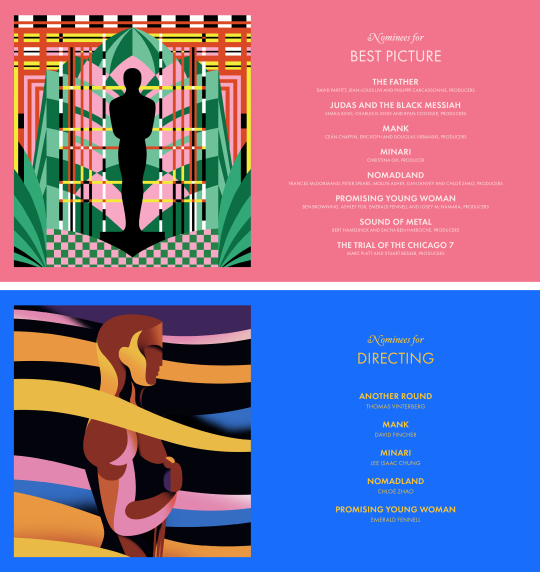
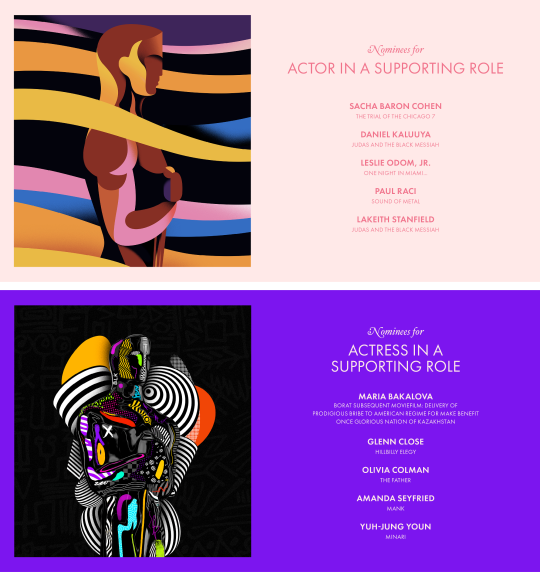
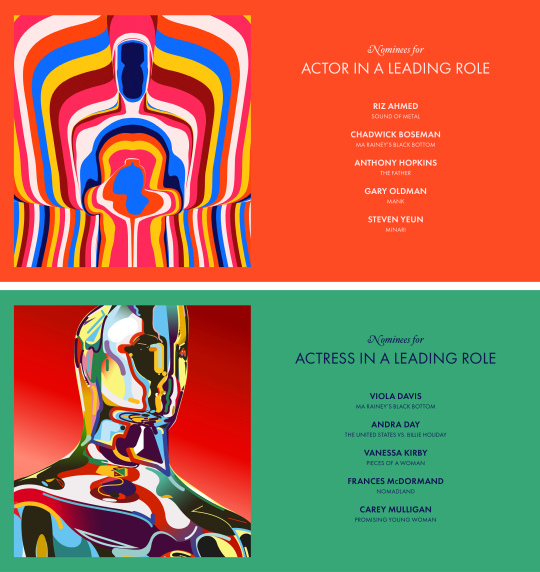
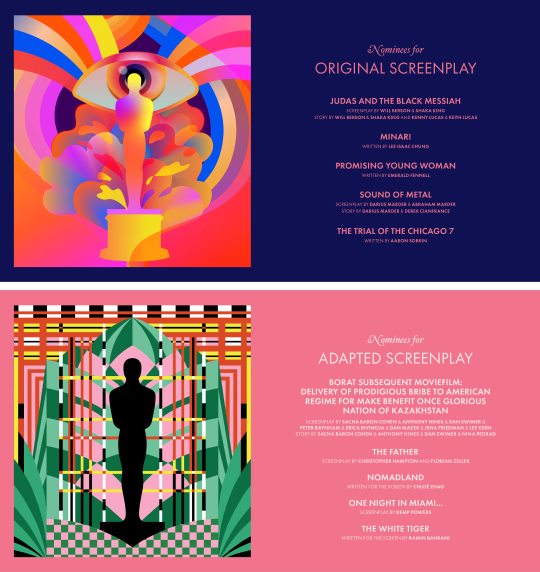
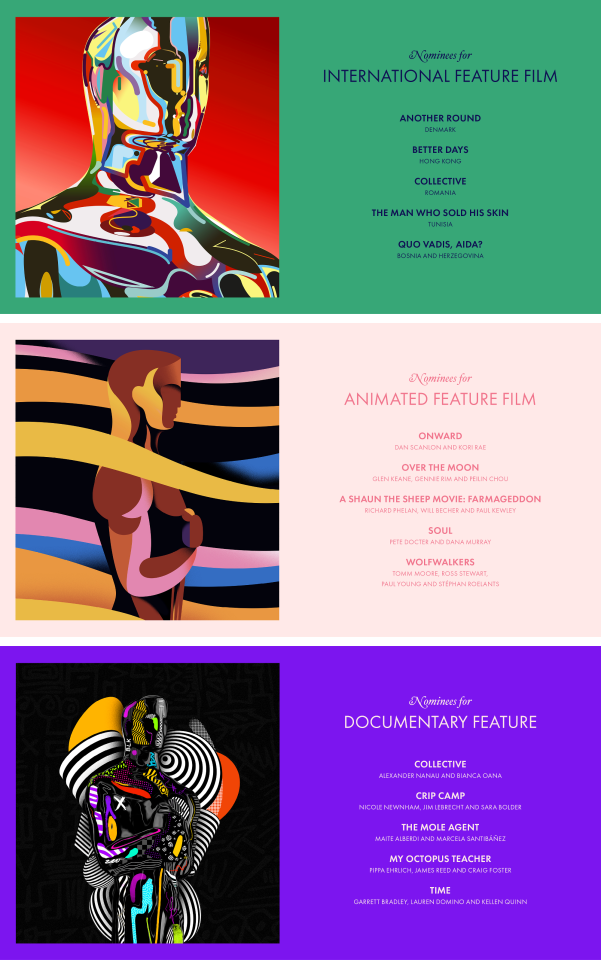
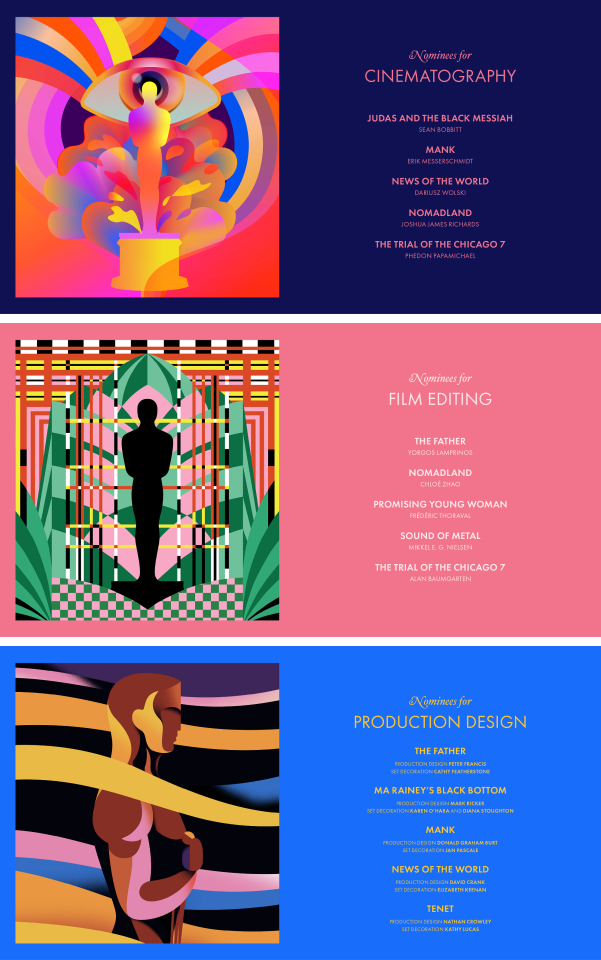
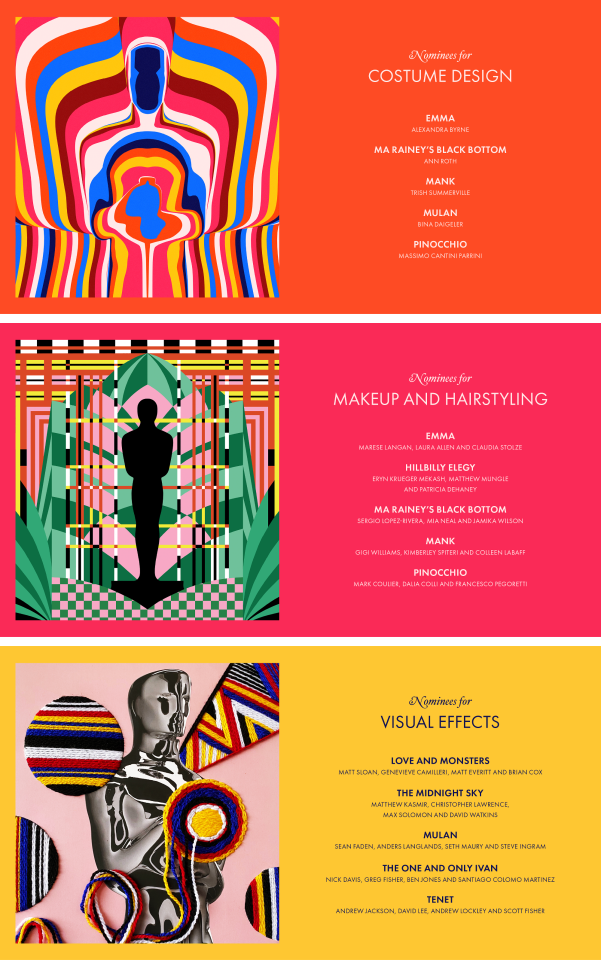
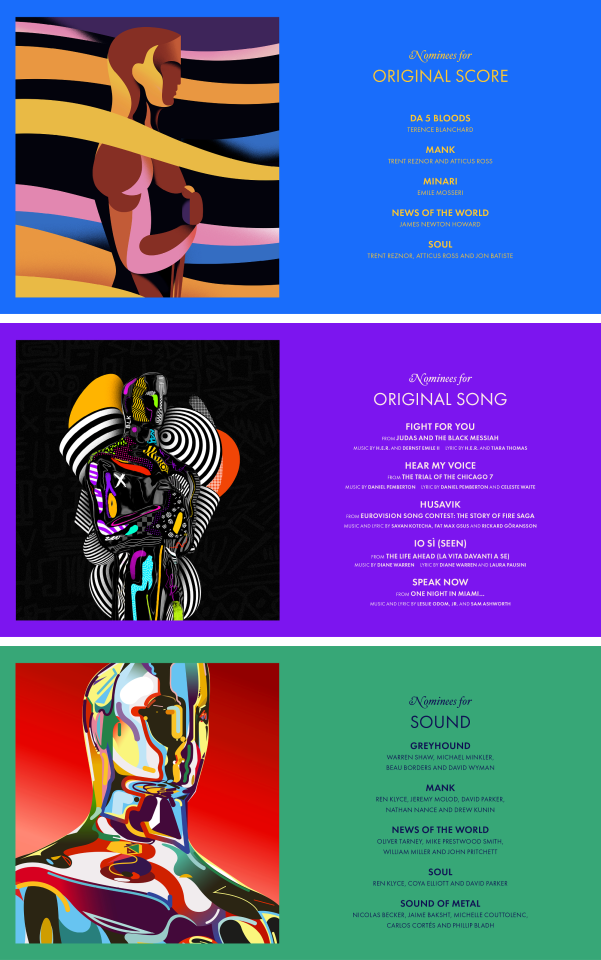
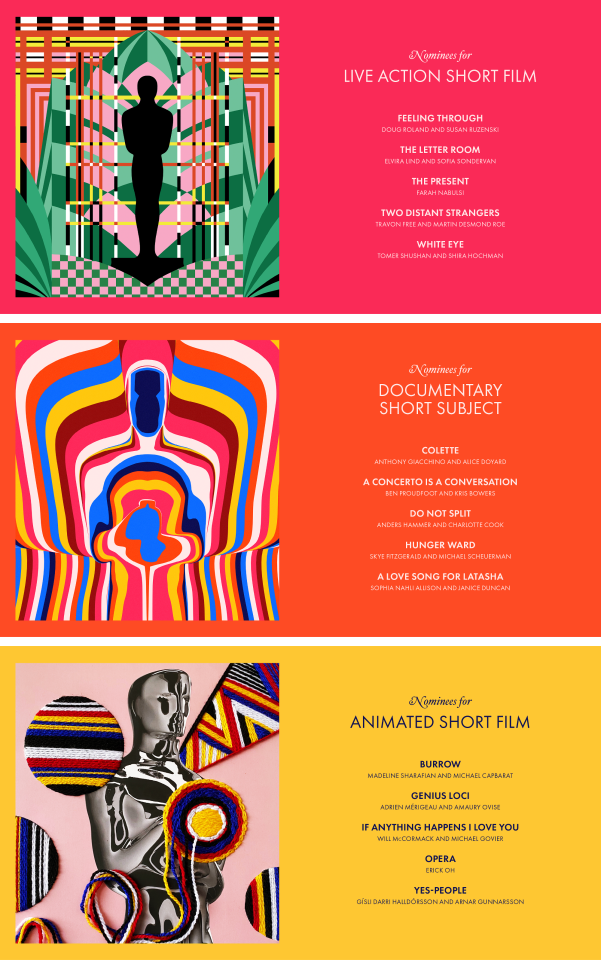
93rd Academy Awards Nominees
BEST PICTURE
The Father – David Parfitt, Jean-Louis Livi, and Philippe Carcassonne
Judas and the Black Messiah – Shaka King, Charles D. King, and Ryan Coogler
Mank – Ceán Chaffin, Eric Roth, and Douglas Urbanski
Minari – Christina Oh
Nomadland – Frances McDormand, Peter Spears, Mollye Asher, Dan Javey, and Chloé Zhao
Promising Young Woman – Ben Browning, Ashley Fox, Emerald Fennell, and Josey McNamara
Sound of Metal – Bert Hamelinick and Sacha Ben Harroche
The Trial of the Chicago 7 – Marc Platt and Stuart Besser
BEST DIRECTOR
Lee Isaac Chung – Minari
Emerald Fennell – Promising Young Woman
David Fincher – Mank
Thomas Vinterberg – Another Round
Chloé Zhao – Nomadland
BEST ACTOR
Riz Ahmed – Sound of Metal as Ruben Stone
Chadwick Boseman (posthumous nominee) – Ma Rainey's Black Bottom as Levee Green
Anthony Hopkins – The Father as Anthony
Gary Oldman – Mank as Herman J. Mankiewicz
Steven Yeun – Minari as Jacob Yi
BEST ACTRESS
Viola Davis – Ma Rainey's Black Bottom as Ma Rainey
Andra Day – The United States vs. Billie Holiday as Billie Holiday
Vanessa Kirby – Pieces of a Woman as Martha Weiss
Frances McDormand – Nomadland as Fern
Carey Mulligan – Promising Young Woman as Cassandra “Cassie” Thomas
BEST SUPPORTING ACTOR
Sacha Baron Cohen – The Trial of the Chicago 7 as Abbie Hoffman
Daniel Kaluuya – Judas and the Black Messiah as Fred Hampton
Leslie Odom Jr. – One Night in Miami... as Sam Cooke
Paul Raci – Sound of Metal as Joe
Lakeith Stanfield – Judas and the Black Messiah as William "Bill" O'Neal
BEST SUPPORTING ACTRESS
Maria Bakalova – Borat Subsequent Moviefilm: Delivery of Prodigious Bribe to American Regime for Make Benefit Once Glorious Nation of Kazakhstan as Tutar Sagdiyev
Glenn Close – Hillbilly Elegy as Bonnie "Mamaw" Vance
Olivia Colman – The Father as Anne
Amanda Seyfried – Mank as Marion Davies
Youn Yuh-jung – Minari as Soon-ja
BEST ORIGINAL SCREENPLAY
Judas and the Black Messiah – Screenplay by Will Berson and Shaka King; Story by Will Berson, Shaka King, Keith Lucas, and Kenny Lucas
Minari – Lee Isaac Chung
Promising Young Woman – Emerald Fennell
Sound of Metal – Screenplay by Darius Marder and Abraham Marder; Story by Darius Marder and Derek Cianfrance
The Trial of the Chicago 7 – Aaron Sorkin
BEST ADAPTED SCREENPLAY
Borat Subsequent Moviefilm: Delivery of Prodigious Bribe to American Regime for Make Benefit Once Glorious Nation of Kazakhstan – Screenplay by Sacha Baron Cohen, Anthony Hines, Dan Swimer, Peter Baynham, Erica Rivinoja, Dan Mazer, Jena Friedman, and Lee Kern; Story by Baron Cohen, Hines, Swimer, and Nina Pedrad; Based on the character Borat Sagdiyev by Baron Cohen
The Father – Christopher Hampton & Florian Zeller, based on the play by Zeller
Nomadland – Chloé Zhao, based on the book by Jessica Bruder
One Night in Miami... – Kemp Powers, based on his play
The White Tiger – Ramin Bahrani, based on the novel by Aravind Adiga
BEST INTERNATIONAL FEATURE FILM
Another Round (Denmark) in Danish – directed by Thomas Vinterberg
Better Days (Hong Kong) in Mandarin – directed by Derek Tsang
Collective (Romania) in Romanian – directed by Alexander Nanau
The Man Who Sold His Skin (Tunisia) in Arabic – directed by Kaouther Ben Hania
Quo Vadis, Aida? (Bosnia and Herzegovina) in Bosnian – directed by Jasmila Žbanić
BEST ANIMATED FEATURE FILM
Onward – Dan Scanlon and Kori Rae
Over the Moon – Glen Keane, Gennie Rin, and Peilin Chou
A Shaun the Sheep Movie: Farmageddon – Richard Phelan, Will Becher, and Paul Kewley
Soul – Pete Docter and Dana Murray
Wolfwalkers – Tomm Moore, Ross Stewart, Paul Young, and Stéphan Roelants
BEST DOCUMENTARY FEATURE
Collective – Alexander Nanau and Bianca Oana
Crip Camp – Nicole Newnham, Jim LeBrecht and Sara Bolder
The Mole Agent – Maite Alberdi and Marcela Santibáñez
My Octopus Teacher – Pippa Ehrlich, James Reed, and Craig Foster
Time – Garrett Bradley, Lauren Domino, and Kellen Quinn
BEST CINEMATOGRAPHY
Judas and the Black Messiah – Sean Bobbitt
Mank – Erik Messerschmidt
News of the World – Dariusz Wolski
Nomadland – Joshua James Richards
The Trial of the Chicago 7 – Phedon Papamichael
BEST FILM EDITING
The Father – Yorgos Lamprinos
Nomadland – Chloé Zhao
Promising Young Woman – Frédéric Thoraval
Sound of Metal – Mikkel E.G. Nielsen
The Trial of the Chicago 7 – Alan Baumgarten
BEST PRODUCTION DESIGN
The Father – Production Design: Peter Francis; Set Decoration: Cathy Featherstone
Ma Rainey's Black Bottom – Production Design: Mark Ricker; Set Decoration: Karen O'Hara and Diana Sroughton
Mank – Production Design: Donald Graham Burt; Set Decoration: Jan Pascale
News of the World – Production Design: David Crank; Set Decoration: Elizabeth Keenan
Tenet – Production Design: Nathan Crowley; Set Decoration: Kathy Lucas
BEST COSTUME DESIGN
Emma – Alexandra Byrne
Ma Rainey’s Black Bottom – Ann Roth
Mank – Trish Summerville
Mulan – Bina Daigeler
Pinocchio – Massimo Cantini Parrini
BEST MAKEUP AND HAIRSTYLING
Emma – Marese Langan, Laura Allen, and Claudia Stolze
Hillbilly Elegy – Eryn Krueger Mekash, Patricia Dehaney, and Matthew Mungle
Ma Rainey's Black Bottom – Matiki Anoff, Mia Neal, and Larry M. Cherry
Mank – Kimberley Spiteri, Gigi Williams
Pinocchio – Dalia Colli, Mark Coulier, and Francesco Pegoretti
BEST VISUAL EFFECTS
Love and Monsters – Matt Sloan, Genevieve Camailleri, Matt Everitt, and Brian Cox
The Midnight Sky – Matthew Kasmir, Christopher Lawren, Max Solomon, and David Watkins
Mulan – Sean Faden, Anders Langlands, Seth Maury, and Steven Ingram
The One and Only Ivan – Nick Davis, Greg Fisher, Ben Jones, and Santiago Colomo Martinez
Tenet – Andrew Jackson, David Lee, Andrew Lockley and
BEST ORIGINAL SCORE
Da 5 Bloods – Terence Blanchard
Mank – Trent Reznor and Atticus Ross
Minari – Emile Mosseri
News of the World – James Newton Howard
Soul – Trent Reznor, Atticus Ross, and Jon Batiste
BEST ORIGINAL SONG
"Fight for You" from Judas and the Black Messiah – Music by H.E.R. and Dernst Emile II; Lyric by H.E.R. and Tiara Thomas
"Hear My Voice" from The Trial of the Chicago 7 – Music by Daniel Pemberton; Lyric by Daniel Pemberton and Celeste Waite
"Husavik" from Eurovision Song Contest: The Story of Fire Saga – Music and Lyric by Savan Kotecha, Fat Max Gsus, and Rickard Göransson
"Io Sì (Seen)" from The Life Ahead – Music by Diane Warren; Lyric by Diane Warren and Laura Pausini
"Speak Now" from One Night in Miami... – Music and Lyric by Leslie Odom Jr. and Sam Ashworth
BEST SOUND
Greyhound – Warren Shaw, Michael Minkler, Beau Borders, and David Wyman
Mank – Ren Klyce, Jeremy Molod, David Parker, Nathan Nance, and Drew Kunin
News of the World – Oliver Tarney, Mike Prestwood Smith, William Miller, and John Pritchett
Soul – Ren Klyce, Coya Elliot, and David Parker
Sound of Metal – Nicolas Becker, Jaime Baksht, Michelle Couttolenc, Carlos Cortes, and Philip Bladh
BEST LIVE ACTION SHORT FILM
Feeling Through – Doug Roland and Susan Ruzenski
The Letter Room – Elvira Lind and Sofia Sondervan
The Present – Farah Nabulsi
Two Distant Strangers – Travon Free and Martin Desmond Roe
White Eye – Tomer Shushan and Shira Hochman
BEST ANIMATED SHORT FILM
Burrow – Madeline Sharafian and Michael Capbarat
Genius Loci – Adrien Mérigeau and Amaury Ovise
If Anything Happens I Love You – Will McCormack and Michael Govier
Opera – Eric Oh
Yes-People – Gísli Darri Halldórsson and Arnar Gunnarsson
BEST DOCUMENTARY SHORT SUBJECT
Colette – Anthony Giacchino and Alice Doyard
A Concerto Is a Conversation – Ben Proudfoot and Kris Bowers
Do Not Split – Anders Hammer and Charlotte Cook
Hunger Ward – Skye Fitzgerald and Michael Shueuerman
A Love Song for Latasha – Sophia Nahali Allison and Janice Duncan
#93rd Academy Awards#Academy Awards#Oscars#The Father#Judas and the Black Messiah#Mank#Minari#Nomadland#Promising Young Woman#Sound of Metal#The Trial of the Chicago 7#Lee Isaac Chung#Emerald Fennell#David Fincher#Thomas Vinterberg#Chloé Zhao#Riz Ahmed#Chadwick Boseman#Anthony Hopkins#Gary oldman#Steven Yeun#Viola Davis#Andra Day#Vanessa Kirby#Frances McDormand#Carey Mulligan#Sacha Baron Cohen#Daniel Kaluuya#Leslie Odom Jr#Paul Raci
215 notes
·
View notes
Text
Wednesday, 16th February: The obliging Mr. Frank Churchill fastens a rivet
Read the post and comment on WordPress
Read: Vol. 2, chs. 9–10; pp. 149–160 (“Emma did not repent” through to “before they set off for Randalls”).
Context
Emma reflects on her visit to the Coles. She and Harriet go to Ford’s. Mrs. Weston and Frank Churchill call on the Bateses.
We know that this occurs “the next day” from the dinner party of the 15th (p. 149). The rapid pace of events at this point, leading from Jane Fairfax’s and Frank Churchill’s separate entrances into the neighborhood, and Emma’s imaginative suspicions regarding Jane, contrasts with the slowness that followed Emma’s self-reflection in late December and January.
Note that the sections “I Can’t See Without My Glasses!” and “What Made Th’Assembly Shine?” contain spoilers.
Readings and Interpretations
Worthy People!
At the beginning of this section, Emma reflects that she “must have delighted the Coles—worthy people, who deserved to be made happy!” (pp. 149–50). David Monaghan writes that the thought is “indicative of a continued refusal to grant the Coles the respect due to them” (p. 128); indeed, the language is such as can only be used towards a social inferior.
David Amigoni writes that free indirect discourse is here used to “subtly ironis[e] Emma’s condescending social attitude to the Coles”: “While Emma is the focaliser it is the narrator who speaks, so the character is speaking indirectly rather than directly—except, it appears, in the emphatic remark after the slashes (‘worthy people…’), which is in a markedly different register from the narrator’s and is clearly Emma’s direct and unappealing, self-regarding speech” (pp. 29–30). Amigoni’s reading of FID in Emma thus accords with that of other scholars we have discussed who view it as a distancing technique.
Claudia Johnson defends Emma from charges of snobbery: “Emma may be convinced that in attending their party she “must have delighted the Coles—worthy people, who deserved to be made happy!”, but she keeps the satisfactions of condescension to herself.” And “[m]ore than nicety is at issue here”; tact represents a significant social and personal virtue in Austen, while “persistently apprising [others] of their [social] inferiority constitute[s] a socially significant wrong, a theft of the self-satisfaction to which all are entitled” (p. 129).
No Understanding a Word of it
Harriet’s attempt to comfort Emma at Jane Fairfax’s expense has attracted much critical commentary. Ruth Perry writes:
Ignorant Harriet, who hates Italian singing because ‘there is no understanding a word of it’, is more aware of Jane’s material misfortune than her artistic excellence. Callously she remarks, ‘if she does play so very well, you know, it is no more than she is obliged to do, because she will have to teach’ [p. 150]. As Patrick Piggott long ago observed: “From this we may collect that Harriet feels herself in a position to look down on Jane Fairfax—that though she is herself no more than ‘the natural daughter of somebody’—she can, merely because of the liberal allowance made to her by her unknown father, feel superior to a young woman who is as far above her in intellect and accomplishment as she is by birth (97).” (p. 140)
Bruce Stovel attributes Harriet’s attitude in this instance to Emma’s influence: “Harriet changes under Emma’s ministrations; we hear quite a different person halfway through the novel, when Harriet disputes Emma’s praise of Jane Fairfax’s piano-playing […]. Harriet, in other words, is becoming uppity” (n.p.).
Susan Allen Ford connects this scene to Regina Maria Rothe’s The Children of the Abbey, which we know Harriet has read (vol. 1, ch. 4; p. 17). It “suggests […] strongly that Harriet has not learned from her reading”:
When some of the villains attempt to embarrass Amanda [the heroine of Children] by demanding that she play before company, she is so “susceptible of the powers of harmony” that “her style [becomes] so masterly and elegant, as to excite universal admiration” in all except those jealous of her (232). She then sings “a plaintive Italian air” with “exquisite taste and sweetness” (233). Lady Euphrasia, Amanda’s cousin and enemy, declares, “I never knew anything so monstrously absurd… as to let a girl in her situation learn such things, except, indeed, it was to qualify her for a governess, or an opera singer” (233). (And, in fact, Amanda later is employed as a schoolteacher and then as a governess.) […] Not only does this echo suggest that Harriet is a poor reader, impervious to Roche’s moral ironies (and has no “taste” herself), but it also indicates that she shares Emma’s jealousy of Jane Fairfax, without being able to disguise it as well. (n.p.)1
Harriet’s attempt to comfort Emma is, at any rate, bound to fail: “Clearly Harriet takes her opinions from others; she is culturally uninformed; and she ends with the gratuitous sneer of the amateur at the professional. Therefore Emma is not comforted. She is a more discriminating critic than that” (McMaster, p. 35).
Seeing Nothing
The scene in which Emma looks out the door of Ford’s for amusement is generally regarded as thematically important. Rachel Brownstein writes that
Jane Austen’s best readers have found certain passages in her works to be especially dense with secrets and hints about her motives, meanings, practices, and views. One occurs at the mid-point of Emma […]; in the geographical and social center of Highbury, in the midst of Harriet Smith’s shopping at Ford’s store. Emma stands just outside the door of Ford’s, looking “for amusement.” The dramatic climax of what action there is will come later […], but this well-known passage in the thick of things seems to be on many counts central: [quotes from “much could not be hoped” to “does not answer”; vol. 2, ch. 9 (27); p. 151].
What Emma actually sees in the heart of Highbury surely fails to measure up to her hopes of amusement, although those are not high […]. The list of secondary and dead creatures begins to suggest that an ominous gloom threatens to inflect Emma’s boredom—that her idle moment is redolent of mortality. […] A mind as lively as Emma’s is self-reflexive: suffering the low level of conversation at the Coles, she had found herself half-admiring Harriet for being satisfied with its banality. Irony is an aspect of her liveliness of mind: so how are we to read the reflections that go through her mind as she stands outside Ford’s? (pp. 140–1)
Juliet McMaster calls the scene “a moment of still water, as it were, between the Harriet-Elton debacle and the Frank-Jane affair; between the dinner at the Coles and the visit to hear Jane Fairfax play on her new piano” (p. 26). Her reading of it is less “grotesque” (Brownstein, p. 142) than is Brownstein’s:
Emma’s mind, we know, is always “lively,” but not so often “at ease.” But for now she is well entertained. Her mind can “do with seeing nothing”—nothing of major import, that is, or nothing she needs to take over the management of; and it “can see nothing that does not answer”—for her present purpose of being amused. We could explore the last phrase further: Emma’s hyperactive mind, with her habit of eager over-interpretation, can always make something out of nothing. Making something out of nothing, some might claim, is an activity we see her busy at throughout the novel. (pp. 26–7)2
Mark Parker reads Emma’s thinking here as an example of the “bourgeois ideology” which Austen, throughout the course of the novel, “lucidly analyzes”:
“Only by carefully screening her gaze from other considerations can Emma see nothing that is not in Highbury and the nothing that is. The proprietorial gaze of the Hartfield heiress measures the villagers by their capacity to amuse her. Upon finding them inadequate, Emma gives way to flattering considerations of her “lively and at ease” mind. This satisfied gaze finds a comfortable world […] far from the Spa Fields and the heated orations of working-class radicals. That Emma can make do with this “nothing” and cease com plaint testifies to the power of her class to make the world in a way that allows the individuals of her class to perceive it as natural. (p. 358)
Predictions on Diction
For Roger Gard, the fact that Miss Bates “meaninglessly fails to complete sentences” is a “signal” for her “egregious lack of emotional and mental sureness and economy”: “Mr. Knightley (and others) are quite capable of expressive English aposiopesis […], and others break off, like Mr. Elton, under the influence of emotion; but Miss Bates is genuinely, consistently, inconsequent” (p. 171). He quotes Miss Bates’s speech in this chapter (from “I declare I cannot recollect” to “a job of that sort excessively”; p. 154), concluding that it is
full of information, as Mary Lascelles says, including information about Frank’s affected manner—but in marked contrast to the formed speech usual to the other characters. A few lines down there is a further “That, you know, was so very…” And a little later, “He would be so very…” both left hanging. […] Miss Bates’s diffusion is un-eccentric. It seems the result of an experiment with direct, unsummarised representation, closer to a copy of nature than is the speech of the equally commonplace people who surround her—but who finish their sentences. (pp. 171–2)
John Wiltshire also references the sentences which Miss Bates “left hanging”:
Miss Bates’s frequent effusions of gratitude are so intrinsic a part of her social presence—‘You are very kind’; ‘so very obliging’; ‘such a very kind attention’ etc.—that they obviously contribute to Emma’s irritation and antagonism. When Miss Bates says that fixing her mother’s spectacles was ‘so very obliging of Mr. Frank Churchill’, this reiterated tic of her conversational repertoire allows Austen (on side with Emma) to play a game, for Frank is soon said to be ‘so very…’, and a little later in the same speech, ‘That, you know was so very…’, which omissions are like winks to the reader to supply the missing word. The iteration of ‘so very obliging’ is a constant reminder that, as Knightley is to put it later, Miss Bates has ‘sunk from the comforts she was born to’; a reminder of social inequality, and thus, as Emma must instinctively recognise, of the obligation to oblige. (p. 133)3
I Can’t See Without My Glasses!
When Emma looks down the Randalls road from the doorway of Ford’s, “[t]he scene enlarged; two persons appeared” (p. 151). Laura Mooneyham notes that “[t]his way of introducing Frank shows that he functions primarily to enlarge the scope of Emma’s imaginings; his duplicity and Emma’s role as his dupe are made clear by the fact that his destination is Jane Fairfax’s home, not Emma’s” (p. 135)
As in previous sections, a knowledge of future events teaches us how to read parts of this day. Mrs. Weston says to Emma, “‘my companion tells me […] that I absolutely promised Miss Bates last night, that I would come this morning. I was not aware of it myself. I did not know that I had fixed a day, but as he says I did, I am going now” (p. 151). Frank has presumably lied in order to conjure an opportunity to see Jane; Emma’s supposition that Hartfield was the ultimate destination and the Bateses’ merely a waypoint is incorrect. The idea that Frank “returned with Mrs. Weston to Mrs. Bates’s door” “with the hope of Hartfield to reward him” is the kind of trick to which the first volume has accustomed us (p. 152).
Chapter nine ends with the arrival of Emma and Mrs. Weston to the Bateses, some time after Frank Churchill has arrived. Wiltshire notes how evocative this chapter break is:
An especially clever use of textual space occurs when Emma climbs the awkward stairs to the Bateses’ rooms in order to view the famous pianoforte at the end of chapter nine of the second volume […]: [quotes from “Pray take care, Mrs. Weston” to “the step at the turning” (p. 155)]. This is the end of the chapter. The next opens with ‘The appearance of the little sitting-room as they entered, was tranquillity itself.’ The space between the chapters—the structural pause in reading—mimics the few moments of warning given by Miss Bates’s voice to Frank and Jane that allows them, presumably engaged upstairs in something not quite tranquil, to take up the positions that are revealed as the new chapter opens […]. Thus the arrangement of the text, together with the sly and duplicitous first sentence of chapter ten—‘appearance’ being interpretable in more than one sense—connives with the trickery it designates. (pp. 110–1)
Frank and Jane’s positions as the others enter the room do indeed seem posed: “Frank Churchill, at a table near her, most deedily occupied about her spectacles, and Jane Fairfax, standing with her back to them, intent on her pianoforte.”4 Joseph Wiesenfarth explains the scene thusly:
Mrs. Bates cannot knit without spectacles. She cannot hear well either (II.i.158). When the party of women arrives, Mrs. Weston is surprised to see Frank still on the job: “‘What! . . . have not you finished it yet?”‘Of course he hasn’t; he has hardly begun. Since Mrs. Bates can’t see, hear, or work, she falls asleep. Frank has effectually been alone with Jane. He is not wasting time with spectacles; he is making time with Jane! By taking away Mrs. Bates’s spectacles, he has created an occasion for his convenience. Frank, in these circumstances, can safely tell Jane about Emma’s shameful conjectures about the pianoforté, which Jane stares at as Emma enters the room. (p. 11)
What Made Th’Assembly Shine?
At several points throughout this section, Frank uses Emma’s suspicion to communicate with Jane. Per Alistair Duckworth, “if we […] consider how the scene appears to Jane, a very different meaning is evident” than the one that is apparent to Emma, or to many first-time readers: “to her Churchill’s remarks can only appear as an amusing ridicule of Emma, and as a series of embarrassing but touchingly nostalgic remembrances of their shared experiences” (pp. 170–1).
When Frank hints at the significance of the date of the piano’s arrival, for example, he is supposedly teasing Jane about Mr. Dixon but really emphasizing its status as a Valentine’s Day gift from him: “How much your friends in Ireland must be enjoying your pleasure on this occasion, Miss Fairfax. I dare say they often think of you, and wonder which will be the day, the precise day of the instrument’s coming to hand” (p. 157). Ruth Perry also notes that
Frank calls attention to other aspects of the unexpected present, to the ‘softness of the upper notes’, apparently preferred by Col. Campbell and all his party at Weymouth, and probably specified in the order to Broadwood [p. 156]. He picks up some of the music that was sent with the instrument, […] exclaiming on how thoughtfully the gift was managed, ‘so thoroughly from the heart’. He adds ‘true affection only could have prompted it’, which elicits from Jane Fairfax a smile she tries to hide. (p. 142)
Jane’s performance on the pianoforte may also be a hint. The tune of “Robin Adair” is from the earlier folk tune “Eileen Aroon,” which Perry notes was “associated with disguise, secrecy and thwarted love” (p. 144); the lyrics
were said to have been written by Lady Caroline Keppel in the 1750s when her family forbade her to marry the penniless surgeon Robin Adair. Her health broke down, and she was sent to Bath, where she wrote these plaintive verses; but as she grew weaker, her family relented, and allowed her to marry her love. Thus this tale too emphasises an unequal match and parental disapproval with an eventual happy marriage. (p. 145)
Peter Alexander notes that “‘Robin Adair’ immediately follows another piece of music Jane has played and which had special significance for herself and Frank in that they danced to it at Weymouth, where they entered their secret engagement, and she is plainly using the music as a covert means of replying to Frank’s covert affirmation of his continued love” (p. 85). He argues that the song’s lyrics “allusively but aptly foreshadow[] much of the suffering, the privation, and the secrecy she has to endure up to the point when Frank’s aunt dies” (p. 86).
Footnotes
Margaret Doody instead compares Emma to Lady Euphrasia on the basis of this incident: “At moments, Emma unconsciously indulges inner gloating over the prospect of Jane’s talents descending into the thankless work of a governess. After the Coles’ party the naively sycophantic Harriet comfortingly voices the opinions Emma would like to be allowed to indulge […]. Austen switches the poles of Roche’s narrative; in the new narrative focus, readers’ sympathies go to the “the mean girl,” while the talented disadvantaged beauty has to fight (often in vain) for an equal place in the narrative” (p. 162).
Robert Merrett also reads the scene as an index of Emma’s creativity: “Clearly, despite the imaginative indulgence and illusions of omniscience which produce dissatisfaction, Emma’s mind can achieve contentment and be acceptably creative within the limits of empirical ideas” (p. 43). On this scene see also Mooneyham (p. 134); Tsomondo (p. 191).
See Barchas on how this serves to emphasize the adverb: “On a few occasions, judgment simply comes to a halt at very” (p. 312).
Austen is credited by the OED as the first user of the word “deedily” in print, but the word may have been dialectical: see van Ostade, p. 228.
Discussion Questions
What do you think of the Coles after the events of the last section? Is Emma being unjust to them?
What motivates Harriet’s comment about Jane? What can we tell about Harriet from this comment, and why is Emma unconvinced by it?
What is the narrative purpose of Miss Bates’s sometimes fragmented syntax? What does it say, if anything, about her character?
For repeat readers: do you see any other hints of the future plot of the novel that I have not mentioned?
Bibliography
Alexander, Peter F. “‘Robin Adair’ as a Musical Clue in Jane Austen’s Emma.” The Review of English Studies 39.153 (February 1988), pp. 84–6. DOI: 10.1093/res/XXXIX.153.84.
Austen, Jane. Emma (Norton Critical Edition). 3rd ed. New York: W. W. Norton & Company, [1815] 2000.
Barchas, Janine. “Very Austen: Accounting for the Language of Emma.” Nineteenth-Century Literature 62.3 (December 2007), pp. 303–38. DOI: 10.1525/ncl.2007.62.3.303.
Brownstein, Rachel M. Why Jane Austen? New York: Columbia University Press (2011).
Doody, Margaret. Jane Austen’s Names: Riddles, Persons, Places. Chicago: University of Chicago Press (2015).
Duckworth, Alistair M. “Emma and the Dangers of Individualism.” In The Improvement of the Estate: A Study of Jane Austen’s Novels. Baltimore, ML: John Hopkins Press, 1971, pp. 145–78.
Ford, Susan Allen. “‘Not What You Would Think Anything Of’: Robert Martin and Harriet Smith.” Persuasions 38 (2016), pp. 137–54.
Gard, Roger. “Emma’s Choices.” In Jane Austen’s Novels: The Art of Clarity. Avon: Yale University Press (1992), pp. 155–81.
Johnson, Claudia L. “Emma: Woman, Lovely Woman, Reigns Alone.” In Women, Politics and the Novel. Chicago: University of Chicago Press (1988), pp. 121–43. Excerpted in Austen [1815], pp. 400–13.
Lascelles, Mary. Jane Austen and Her Art. Oxford: Oxford University Press (1939).
McMaster, Juliet. “The Critics of Talk in Emma.” Persuasions 38 (2016), pp. 30–40.
Merrett, Robert James. “The Concept of Mind in Emma.” English Studies in Canada 6.1 (Spring 1980), pp. 39–55. DOI: 10.1353/esc.1980.0046.
Monaghan, David. “Emma.” In Jane Austen: Structure and Social Vision. London: Macmillan (1980), pp. 115–42. DOI: 10.1007/978-1-349-04847-2_6
Mooneyham, Laura G. “The Double Education of Emma.” In Romance, Language and Education in Jane Austen’s Novels. Houndmills: Macmillan Press (1988), pp. 107–145.
Parker, Mark. “The End of Emma: Drawing the Boundaries of Class in Austen.” The Journal of English and Germanic Philology 91.3 (July 1992), pp. 344–59.
Perry, Ruth. “Music.” In The Cambridge Companion to ‘Emma,’ ed. Peter Sabor. Cambridge: Cambridge University Press (2015), pp. 135–49. DOI: 10.1017/CBO9781316014226.012.
Stovel, Bruce. “The New Emma in Emma.” Persuasions On-Line 28.1 (Winter 2007).
Tsomondo, Thorrell. “Temporal, Spatial, and Linguistic Configurations and the Geopolitics of Emma.” Persuasions 21 (1999), pp. 88–202.
van Ostade, Ingrid Tieken-Boon. In Search of Jane Austen: The Language of the Letters. Oxford: Oxford University Press (2014).
Wiesenfarth, Joseph. “The Civility of Emma.” Persuasions 18 (1996), pp. 8–23.
Wiltshire, John. “The Heroine.” In The Cambridge Companion to ‘Emma,’ ed. Peter Sabor. Cambridge: Cambridge University Press (2015), pp. 105–19.
13 notes
·
View notes
Photo
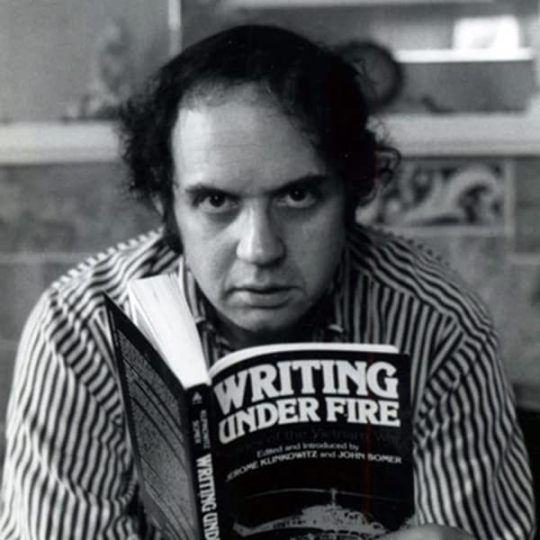
Today we remember the passing of Harvey Pekar who Died: July 12, 2010 in Cleveland Heights, Ohio
Harvey Lawrence Pekar (October 8, 1939 – July 12, 2010) was an American underground comic book writer, music critic, and media personality, best known for his autobiographical American Splendor comic series. In 2003, the series inspired a well-received film adaptation of the same name.
Frequently described as the "poet laureate of Cleveland", Pekar "helped change the appreciation for, and perceptions of, the graphic novel, the drawn memoir, the autobiographical comic narrative." Pekar described his work as "autobiography written as it's happening. The theme is about staying alive, getting a job, finding a mate, having a place to live, finding a creative outlet. Life is a war of attrition. You have to stay active on all fronts. It's one thing after another. I've tried to control a chaotic universe. And it's a losing battle. But I can't let go. I've tried, but I can't."
Among the awards given to Pekar for his work were the Inkpot Award, the American Book Award, a Harvey Award, and his posthumous induction into the Eisner Award Hall of Fame.
Harvey Pekar and his younger brother Allen were born in Cleveland, Ohio, to a Jewish family. Their parents were Saul and Dora Pekar, immigrants from Bialystok, Poland. Saul Pekar was a Talmudic scholar who owned a grocery store on Kinsman Avenue, with the family living above the store. Although Pekar said he wasn't close to his parents due to their dissimilar backgrounds and because they worked all the time, he still "marveled at how devoted they were to each other. They had so much love and admiration for one another."
Pekar said he did not have friends for the first few years of his life. The neighborhood he lived in had once been all white but became mostly black by the 1940s. One of the only white kids still living there, Pekar was often beaten up. He later believed this instilled in him "a profound sense of inferiority." This experience, however, also taught him to become a "respected street scrapper."
Pekar graduated from Shaker Heights High School in 1957. He then briefly served in the United States Navy. After being discharged he attended Case Western Reserve University, where he dropped out after a year. He worked odd jobs before he was hired as file clerk at the Veterans Administration Hospital in 1965. He held this job after becoming famous, refusing all promotions, until he retired in 2001.
Pekar's friendship with Robert Crumb led to the creation of the self-published, autobiographical comic book series American Splendor. Crumb and Pekar became friends through their mutual love of jazz records. It took Pekar a decade to do so: "I theorized for maybe ten years about doing comics." Pekar's influences from the literary world included James Joyce, Arthur Miller, George Ade, Henry Roth, and Daniel Fuchs.
Around 1972, Pekar laid out some stories with crude stick figures and showed them to Crumb and another artist, Robert Armstrong. Impressed, they both offered to illustrate. Pekar & Crumb's one-pager "Crazy Ed" was published as the back cover of Crumb's The People's Comics (Golden Gate Publishing Company, 1972), becoming Pekar's first published work of comics. Including "Crazy Ed" and before the publication of American Splendor #1, Pekar wrote a number of other comic stories that were published in a variety of outlets.
The first issue of Pekar's self-published American Splendor series appeared in May 1976, with stories illustrated by Crumb, Dumm, Budgett, and Brian Bram. Applying the "brutally frank autobiographical style of Henry Miller," American Splendor documented Pekar's daily life in the aging neighborhoods of his native Cleveland.
Pekar and his work came to greater prominence in 1986 when Doubleday collected much of the material from the first ten issues in American Splendor: The Life and Times of Harvey Pekar, which was positively reviewed by, among others, The New York Times. (1986 was also the year Pekar began appearing on Late Night with David Letterman.)
Pekar self-published 15 issues of American Splendor from 1976 to 1991 (issue #16 was co-published with Tundra Publishing). Dark Horse Comics took on the publishing and distribution of Pekar's comics from 1993 to 2003.
In 2006, Pekar released a four-issue American Splendor miniseries through the DC Comics imprint Vertigo. This was collected in the American Splendor: Another Day paperback. In 2008 Vertigo released a second four-issue "season" of American Splendor that was later collected in the American Splendor: Another Dollar paperback.
Pekar's best-known and longest-running collaborators include Crumb, Dumm, Budgett, Spain Rodriguez, Joe Zabel, Gerry Shamray, Frank Stack, Mark Zingarelli, and Joe Sacco. In the 2000s, he teamed regularly with artists Dean Haspiel and Josh Neufeld. Other cartoonists who worked with him include Jim Woodring, Chester Brown, Alison Bechdel, Gilbert Hernandez, Eddie Campbell, David Collier, Drew Friedman, Ho Che Anderson, Rick Geary, Ed Piskor, Hunt Emerson, Bob Fingerman, and Alex Wald; as well as such non-traditional illustrators as Pekar's wife, Joyce Brabner, and comics writer Alan Moore.
In addition to his autobiographical work on American Splendor, Pekar wrote a number of biographies. The first of these, American Splendor: Unsung Hero (Dark Horse Comics, 2003), illustrated by David Collier, documented the Vietnam War experience of Robert McNeill, one of Pekar's African-American coworkers at Cleveland's VA hospital.
Shortly before 1 a.m. on July 12, 2010, Pekar's wife found Pekar dead in their Cleveland Heights, Ohio, home. No immediate cause was determined. In October the Cuyahoga County coroner's office ruled it was an accidental overdose of antidepressants fluoxetine and bupropion. Pekar had been diagnosed with cancer for the third time and was about to undergo treatment.
Pekar was interred at Lake View Cemetery in Cleveland. His headstone features one of his quotations as an epitaph: "Life is about women, gigs, an' bein' creative."
3 notes
·
View notes
Photo

Mark Rothko died on this day in 1970. His work left an indelible impression on millions of people. His art cast a light in my mind at an early age, which is why I chose to start this blog; so I could have a little Rothko every day to enrich the hours. No matter what we read in books, or see in plays, the real artist is always available to us through their art. To paraphrase Schopenhauer, it is itself the last judgement on it.
The New York Times ran his obituary on the front page the next day. Here is the transcription of it:
Mark Rothko, a pioneer of abstract expressionist painting who was widely regarded as one of the greatest artists of his generation, was found dead yesterday, his wrists slashed, in his studio at 157 East 69th Street. He was 66 years old. The Chief Medical Examiner's office listed the death as a suicide.
Mr. Rothko had suffered a heart attack last year, and friends said that he had been despondent in recent months.
Like most American artists of his generation, Mr. Rothko's early career was marked by struggle and was untouched by recognition. His fortunes rose with those of the American brand of painting known as abstract expressionism, in whose development he had played a crucial role, along with Jackson Pollock, Willem de Kooning, Robert Motherwell, Adolph Gottlieb and Clyfford Still.
Today, Mr. Rothko's monumental canvases, in which simple rectangles of glowing col or seem to float on the canvas, are known and collected throughout the world. Mr. Rothko's significance as a painter was underscored by a retrospective exhibition of his works in 1961 at the Museum of Modern Art, which at the time only gave such shows to living painters of worldwide reputation.
Yesterday, William S. Rubin, chief curator of painting and sculpture at the museum, said: “The loss to modern art is incalculable. One of the pioneers of abstract expressionism, his work was crucial to the establishment of the whole tradition of recent color‐field painting and continued to pose challenges right up to his death.”
His historical importance was prominently reaffirmed this year in two major New York shows: “New York Painting and Sculpture: 1940–1970,” at the Metropolitan Museum of Art, and “The New American Painting and Sculpture: The First Generation” at the Museum of Modern Art.
Mr. Rothko's quiet, contemplative canvases, often described as “painting about the sublime,” are in strong contrast to the turbulent imagery of most of his contemporaries. The subdued content of Mr. Rothko's art was described as “empty” by conservative critics; those in favor admire their other‐worldly calm.
‘Baffling and Mysterious’
In 1957 the London critic Robert Melville wrote of Mr. Rothko's work: “It is baffling and mysterious in its simplicity, and I know that many people only find it an insult to their intelligence; but if by some miracle Rothko's attitude to painting were to prevail, we should all be on the way to becoming converts to Zen Buddhism.”
Mr. Rothko shared the be lief of his generation that painting was an act of faith. Rothko was not given to public declamation about his work, but he spoke to friends of “trying to project a tragic vision.” And he was concerned about the way that vision was received.
“A picture lives by companionship, expanding and quickening in the eyes of the sensitive observer,” he wrote. “It dies by the same token. It is therefore a risky act to send it out into the world. How often it must be permanently impaired by the eyes of the unfeeling and the cruelty of the impotent who would extend their affliction universally.”
Described by friends as an essentially melancholy man, Mr Rothko was also a brilliant and witty talker.
“His temperament was always Russian and melancholy, even when things were going his way,” said Betty Parsons, a dealer and an old friend and supporter. “But he could make black white, and white black when he spoke. His wit was not at the expense of people, but at the expense of life.”
Mr. Rothko's chief avocational interests were music and friends. “He loved Mozart,” the poet Stanley Kunitz, a close friend, recalled. “And he was a great, loyal, wonderfully affectionate friend.”
‘He Felt Rejected’
Mr. Kunitz added that the artist's unproductivity over the last six months had been “part of his depression.” “His friends were all aware of it,” he noted. “And partly it had to do with the art world. He felt that the scene was being occupied by people who were influenced by him — his followers — and yet he felt rejected at the same time. This really consumed him.”
Mr. Rothko, whose name was Marcus Rothkovich, was born on Sept. 25, 1903, in Dvinsk, Russia. His father, Jacob, a pharmacist, brought his family to the United States in 1913, and settled in Port land, Ore. Young Rothko, preoccupied with political and societal matters, aspired to be a labor leader.
In 1921, he entered Yale, but left the college two years later to “wander around, bum about, starve a bit.” He arrived in New York in 1925, and en rolled in Max Weber's classes at the Art Students League. The stint with Weber was his only formal training, and Mr. Rothko always considered him self a self‐taught painter.
Starting out as a realist, he exhibited in a group show, in 1929 at the Opportunity. Gallery in New York. Later, with many other New York artists hit by the Depression, he worked on the Federal Arts Project in 1936–37.
By the 1940's; his work, which in the previous decade stressed urban themes, began to absorb the surrealist influences of Miro, de Chirico and Max Ernst, artists whom Mr. Rothko greatly admired. In his first important one‐man show at Peggy Guggenheim's Art of This Century gallery, the surrealistic direction of his work was already apparent.
He joined the Betty Parsons Gallery in 1946, and the surrealist iconography soon gave way to completely abstract forms. In 1951 a reviewer for The New York Times wrote of the paintings in his final show at the Betty Parsons Gallery:
“They are given no titles and, in the accepted sense of the word, they represent nothing. They are expressions of pure and elementary color‐form relationships.”
In 1951, Mr. Rothko showed for the first time at the: Museum of Modern Art, in a now famous exhibition called “Abstract Painting and Sculpture in America.” Later he was rep resented in museum shows that traveled abroad, and he gave Europeans their first exposure to his work.
His Work ‘Arrived’
The influential Sidney Janis Gallery began to exhibit his work in 1954, thus signaling not only Mr. Rothko's success but also the “arrival” of the abstract expressionist movement.
In 1958, with Mark Tobey, the painter, and David Smith and Seymour Lipton, the sculptors, Mr. Rothko was chosen to represent the United States at the 29th Venice Biennale.
Mr. Rothko also had an important teaching career. From 1929 to 1952, he taught children at the Center Academy in Brooklyn, and during the sum mere of 1947 and 1949 he taught at the California School of Fine Arts in San Francisco, where he became an important influence on a number of California artists.
He was co‐founder and teacher in 1948 of the influential school on East Eighth. Street called Subjects of the Artists, a discussion center for the New York School painters. With Adolph Gottlieb, Mr. Rothko once stated his artistic credo in a letter that was published in The New York Times on June 13, 1943.
“We favor the simple expression of the, complex thought. We are for the large shape because it has the impact of the unequivocal. We wish to reassert the picture plane. We are for flat forms because they destroy illusion and re veal truth.”
Mr. Rothko, who received an honorary degree from Yale last June, is survived by his widow, the former Mary Alice Beistle, a daughter, Kate, and a son, Christopher.
He also leaves a sister, Sonia Allen, of Portland, and two brothers, Moise Roth of Port land and Albert Roth of Los Angeles.
#Suicide#mark rothko#dailyrothko#abstract expressionism#abstract art#mid-century modern#modern art#rothko#daily rothko#color field painting#important artists#art#art gallery
262 notes
·
View notes
Text
MANK part en tête d’une course aux Oscars bien bizarre
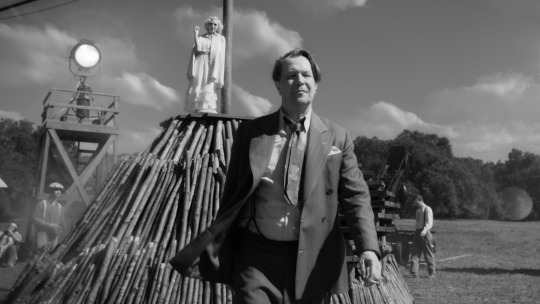
Je me suis réveillé tantôt, j'ai parti la cafetière, puis en checkant Twitter, je me suis dit: "Ah oui, c'est vrai, les nominations des Oscars ont été dévoilées."
C’est la première année depuis une éternité où je ne suis pas au poste au moment où les nominations des Oscars sont annoncées. Je l’ai déjà dit, mais je suis assez désinteressé cette année par cette course aux remises de prix où sont honorés des films que presque personne n’a pu voir sur grand écran, pandémie oblige.
Oui, il y a d’excellents films en lice, comme Nomadland, Sound of Metal et Promising Young Woman. Il y en a aussi que je vais essayer de voir prochainement, Minari notamment. Mais je n’ai pas l’impression qu’il y ait de gros titres qui ont enflammé la planète cinéma comme par exemple Parasite, Once Upon a Time... in Hollywood ou même le divisif Joker l’an dernier.
J’ai vu Mank de David Fincher sur Netflix, j’ai trouvé ça correct, mais c’est loin d’être un film marquant pour moi. Je reviens quand même sur Nomadland, un de mes préférés de 2020 (même s’il ne sortira techniquement pas en salle au Québec avant avril 2021) - ce sera un bon moment de voir Chloé Zhao probablement remporter l’Oscar de la Meilleure réalisation. Il y a plein d’actrices et d’acteurs talentueux qui sont en nomination. Je serais content que Trent Reznor & Atticus Ross soient récompensés pour la musique de Soul. Je trouve ça plate que TENET de Christopher Nolan ait presque été complètement ignoré.
Mais dans l’ensemble, je suis assez indifférent face à tout ça. Je vais sûrement regarder le gala quand même, en espérant que ce ne soit pas un désastre avec des fenêtres Zoom comme les Golden Globes...
Best motion picture of the year
“The Father” David Parfitt, Jean-Louis Livi and Philippe Carcassonne, Producers
“Judas and the Black Messiah” Shaka King, Charles D. King and Ryan Coogler, Producers
“Mank” Ceán Chaffin, Eric Roth and Douglas Urbanski, Producers
“Minari” Christina Oh, Producer
“Nomadland” Frances McDormand, Peter Spears, Mollye Asher, Dan Janvey and Chloé Zhao, Producers
“Promising Young Woman” Ben Browning, Ashley Fox, Emerald Fennell and Josey McNamara, Producers
“Sound of Metal” Bert Hamelinck and Sacha Ben Harroche, Producers
“The Trial of the Chicago 7” Marc Platt and Stuart Besser, Producers
Achievement in directing
“Another Round” Thomas Vinterberg
“Mank” David Fincher
“Minari” Lee Isaac Chung
“Nomadland” Chloé Zhao
“Promising Young Woman” Emerald Fennell
Performance by an actor in a leading role
Riz Ahmed in “Sound of Metal”
Chadwick Boseman in “Ma Rainey’s Black Bottom”
Anthony Hopkins in “The Father”
Gary Oldman in “Mank”
Steven Yeun in “Minari”
Performance by an actor in a supporting role
Sacha Baron Cohen in “The Trial of the Chicago 7”
Daniel Kaluuya in “Judas and the Black Messiah”
Leslie Odom, Jr. in “One Night in Miami…”
Paul Raci in “Sound of Metal”
Lakeith Stanfield in “Judas and the Black Messiah”
Performance by an actress in a leading role
Viola Davis in “Ma Rainey’s Black Bottom”
Andra Day in “The United States vs. Billie Holiday”
Vanessa Kirby in “Pieces of a Woman”
Frances McDormand in “Nomadland”
Carey Mulligan in “Promising Young Woman”
Performance by an actress in a supporting role
Maria Bakalova in “Borat Subsequent Moviefilm: Delivery of Prodigious Bribe to American Regime for Make Benefit Once Glorious Nation of Kazakhstan”
Glenn Close in “Hillbilly Elegy”
Olivia Colman in “The Father”
Amanda Seyfried in “Mank”
Yuh-Jung Youn in “Minari”
Adapted screenplay
“Borat Subsequent Moviefilm: Delivery of Prodigious Bribe to American Regime for Make Benefit Once Glorious Nation of Kazakhstan” Screenplay by Sacha Baron Cohen & Anthony Hines & Dan Swimer & Peter Baynham & Erica Rivinoja & Dan Mazer & Jena Friedman & Lee Kern; Story by Sacha Baron Cohen & Anthony Hines & Dan Swimer & Nina Pedrad
“The Father” Screenplay by Christopher Hampton and Florian Zeller
“Nomadland” Written for the screen by Chloé Zhao
“One Night in Miami…” Screenplay by Kemp Powers
“The White Tigers” Written for the screen by Ramin Bahrani
Original screenplay
“Judas and the Black Messiah” Screenplay by Will Berson & Shaka King; Story by Will Berson & Shaka King and Kenny Lucas & Keith Lucas
“Minari” Written by Lee Isaac Chung
“Promising Young Woman” Written by Emerald Fennell
“Sound of Metal” Screenplay by Darius Marder & Abraham Marder; Story by Darius Marder & Derek Cianfrance
“The Trial of the Chicago 7” Written by Aaron Sorkin
Best international feature film of the year
“Another Round” Denmark
“Better Days” Hong Kong
“Collective” Romania
“The Man Who Sold His Skin” Tunisia
“Quo Vadis, Aida?” Bosnia and Herzegovina
Best animated feature film of the year
“Onward” Dan Scanlon and Kori Rae
“Over the Moon” Glen Keane, Gennie Rim and Peilin Chou
“A Shaun the Sheep Movie: Farmageddon” Richard Phelan, Will Becher and Paul Kewley
“Soul” Pete Docter and Dana Murray
“Wolfwalkers” Tomm Moore, Ross Stewart, Paul Young and Stéphan Roelants
Best documentary feature
“Collective” Alexander Nanau and Bianca Oana
“Crip Camp” Nicole Newnham, Jim LeBrecht and Sara Bolder
“The Mole Agent” Maite Alberdi and Marcela Santibáñez
“My Octopus Teacher” Pippa Ehrlich, James Reed and Craig Foster
“Time” Garrett Bradley, Lauren Domino and Kellen Quinn
Achievement in cinematography
“Judas and the Black Messiah” Sean Bobbitt
“Mank” Erik Messerschmidt
“News of the World” Dariusz Wolski
“Nomadland” Joshua James Richards
“The Trial of the Chicago 7” Phedon Papamichael
Achievement in film editing
“The Father” Yorgos Lamprinos
“Nomadland” Chloé Zhao
“Promising Young Woman” Frédéric Thoraval
“Sound of Metal” Mikkel E. G. Nielsen
“The Trial of the Chicago 7” Alan Baumgarten
Achievement in music written for motion pictures (Original score)
“Da 5 Bloods” Terence Blanchard
“Mank” Trent Reznor and Atticus Ross
“Minari” Emile Mosseri
“News of the World” James Newton Howard
“Soul” Trent Reznor, Atticus Ross and Jon Batiste
Achievement in production design
“The Father” Production Design: Peter Francis; Set Decoration: Cathy Featherstone
“Ma Rainey’s Black Bottom” Production Design: Mark Ricker; Set Decoration: Karen O’Hara and Diana Stoughton
“Mank” Production Design: Donald Graham Burt; Set Decoration: Jan Pascale
“News of the World” Production Design: David Crank; Set Decoration: Elizabeth Keenan
“Tenet” Production Design: Nathan Crowley; Set Decoration: Kathy Lucas
Achievement in costume design
“Emma” Alexandra Byrne
“Ma Rainey’s Black Bottom” Ann Roth
“Mank” Trish Summerville
“Mulan” Bina Daigeler
“Pinocchio” Massimo Cantini Parrini
Achievement in sound
“Greyhound” Warren Shaw, Michael Minkler, Beau Borders and David Wyman
“Mank” Ren Klyce, Jeremy Molod, David Parker, Nathan Nance and Drew Kunin
“News of the World” Oliver Tarney, Mike Prestwood Smith, William Miller and John Pritchett
“Soul” Ren Klyce, Coya Elliott and David Parker
“Sound of Metal” Nicolas Becker, Jaime Baksht, Michelle Couttolenc, Carlos Cortés and Phillip Bladh
Achievement in makeup and hairstyling
“Emma” Marese Langan, Laura Allen and Claudia Stolze
“Hillbilly Elegy” Eryn Krueger Mekash, Matthew Mungle and Patricia Dehaney
“Ma Rainey’s Black Bottom” Sergio Lopez-Rivera, Mia Neal and Jamika Wilson
“Mank” Gigi Williams, Kimberley Spiteri and Colleen LaBaff
“Pinocchio” Mark Coulier, Dalia Colli and Francesco Pegoretti
Achievement in visual effects
“Love and Monsters” Matt Sloan, Genevieve Camilleri, Matt Everitt and Brian Cox
“The Midnight Sky” Matthew Kasmir, Christopher Lawrence, Max Solomon and David Watkins
“Mulan” Sean Faden, Anders Langlands, Seth Maury and Steve Ingram
“The One and Only Ivan” Nick Davis, Greg Fisher, Ben Jones and Santiago Colomo Martinez
“Tenet” Andrew Jackson, David Lee, Andrew Lockley and Scott Fisher
Best documentary short film
“Colette” Anthony Giacchino and Alice Doyard
“A Concerto Is a Conversation” Ben Proudfoot and Kris Bowers
“Do Not Split” Anders Hammer and Charlotte Cook
“Hunger Ward” Skye Fitzgerald and Michael Scheuerman
“A Love Song for Latasha” Sophia Nahli Allison and Janice Duncan
Best animated short film
“Burrow” Madeline Sharafian and Michael Capbarat
“Genius Loci” Adrien Mérigeau and Amaury Ovise
“If Anything Happens I Love You” Will McCormack and Michael Govier
“Opera” Erick Oh
“Yes-People” Gísli Darri Halldórsson and Arnar Gunnarsson
Best live action short film
“Feeling Through” Doug Roland and Susan Ruzenski
“The Letter Room” Elvira Lind and Sofia Sondervan
“The Present” Farah Nabulsi
“Two Distant Strangers” Travon Free and Martin Desmond Roe
“White Eye” Tomer Shushan and Shira Hochman
Achievement in music written for motion pictures (Original song)
“Fight For You” from “Judas and the Black Messiah” Music by H.E.R. and Dernst Emile II; Lyric by H.E.R. and Tiara Thomas
“Hear My Voice” from “The Trial of the Chicago 7” Music by Daniel Pemberton; Lyric by Daniel Pemberton and Celeste Waite
“Husavik” from “Eurovision Song Contest: The Story of Fire Saga” Music and Lyric by Savan Kotecha, Fat Max Gsus and Rickard Göransson
“Io Sì (Seen)” from “The Life Ahead (La Vita Davanti a Se)” Music by Diane Warren; Lyric by Diane Warren and Laura Pausini
“Speak Now” from “One Night in Miami…” Music and Lyric by Leslie Odom, Jr. and Sam Ashworth
3 notes
·
View notes
Text
93rd Academy Awards: The List.
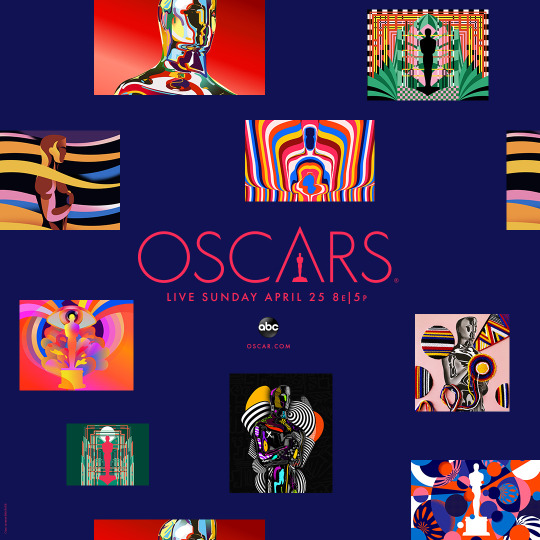
Best Picture
· Nomadland – Mollye Asher, Dan Janvey, Frances McDormand, Peter Spears and Chloé Zhao
o The Father – Philippe Carcassonne, Jean-Louis Livi and David Parfitt
o Judas and the Black Messiah – Ryan Coogler, Charles D. King and Shaka King
o Mank – Ceán Chaffin, Eric Roth and Douglas Urbanski
o Minari – Christina Oh
o Promising Young Woman – Ben Browning, Emerald Fennell, Ashley Fox and Josey McNamara
o Sound of Metal – Bert Hamelinck and Sacha Ben Harroche
o The Trial of the Chicago 7 – Stuart M. Besser and Marc Platt
Best Director
· Chloé Zhao – Nomadland
o Thomas Vinterberg – Another Round
o David Fincher – Mank
o Lee Isaac Chung – Minari
o Emerald Fennell – Promising Young Woman
Best Actor
· Anthony Hopkins – The Father as Anthony
· Riz Ahmed – Sound of Metal as Ruben Stone
· Chadwick Boseman (posthumous) – Ma Rainey's Black Bottom as Levee Green
Gary Oldman – Mank as Herman J. Mankiewicz
· Steven Yeun – Minari as Jacob Yi
Best Actress
· Frances McDormand – Nomadland as Fern
o Viola Davis – Ma Rainey's Black Bottom as Ma Rainey
o Andra Day – The United States vs. Billie Holiday as Billie Holiday
o Vanessa Kirby – Pieces of a Woman as Martha Weiss
o Carey Mulligan – Promising Young Woman as Cassandra "Cassie" Thomas
Best Supporting Actor
· Daniel Kaluuya – Judas and the Black Messiah as Fred Hampton
o Sacha Baron Cohen – The Trial of the Chicago 7 as Abbie Hoffman
o Leslie Odom Jr. – One Night in Miami... as Sam Cooke
o Paul Raci – Sound of Metal as Joe
o Lakeith Stanfield – Judas and the Black Messiah as William "Bill" O'Neal
Best Supporting Actress
· Youn Yuh-jung – Minari as Soon-ja
o Maria Bakalova – Borat Subsequent Moviefilm as Tutar Sagdiyev
o Glenn Close – Hillbilly Elegy as Bonnie "Mamaw" Vance
o Olivia Colman – The Father as Anne
o Amanda Seyfried – Mank as Marion Davies
Best Original Screenplay
· Promising Young Woman – Emerald Fennell
o Judas and the Black Messiah – Screenplay by Will Berson and Shaka King; Story by Berson, King, Keith Lucas and Kenny Lucas
o Minari – Lee Isaac Chung
o Sound of Metal – Screenplay by Abraham Marder and Darius Marder; Story by Derek Cianfrance and D. Marder
o The Trial of the Chicago 7 – Aaron Sorkin
Best Adapted Screenplay
· The Father – Christopher Hampton and Florian Zeller, based on the play by Zeller
o Borat Subsequent Moviefilm – Screenplay by Sacha Baron Cohen, Peter Baynham, Jena Friedman, Anthony Hines, Lee Kern, Dan Mazer, Erica Rivinoja and Dan Swimer; Story by Baron Cohen, Hines, Nina Pedrad and Swimer; Based on the character by Baron Cohen
o Nomadland – Chloé Zhao, based on the book by Jessica Bruder
o One Night in Miami... – Kemp Powers, based on his play
o The White Tiger – Ramin Bahrani, based on the novel by Aravind Adiga
Best Animated Feature Film
· Soul – Pete Docter and Dana Murray
o Onward – Dan Scanlon and Kori Rae
o Over the Moon – Peilin Chou, Glen Keane, and Gennie Rin
o A Shaun the Sheep Movie: Farmageddon – Will Becher, Paul Kewley, and Richard Phelan
o Wolfwalkers – Tomm Moore, Stéphan Roelants, Ross Stewart and Paul Young
Best International Feature Film
· Another Round (Denmark) in Danish – directed by Thomas Vinterberg
o Better Days (Hong Kong) in Mandarin – directed by Derek Tsang
o Collective (Romania) in Romanian – directed by Alexander Nanau
o The Man Who Sold His Skin (Tunisia) in Arabic – directed by Kaouther Ben Hania
o Quo Vadis, Aida? (Bosnia and Herzegovina) in Bosnian – directed by Jasmila Žbanić
Best Documentary Feature
· My Octopus Teacher – Pippa Ehrlich, Craig Foster and James Reed
o Collective – Alexander Nanau and Bianca Oana
o Crip Camp – Sara Bolder, Jim LeBrecht and Nicole Newnham
o The Mole Agent – Maite Alberdi and Marcela Santibáñez
o Time – Garrett Bradley, Lauren Domino and Kellen Quinn
Best Documentary Short Subject
· Colette – Alice Doyard and Anthony Giacchino
o A Concerto Is a Conversation – Kris Bowers and Ben Proudfoot
o Do Not Split – Charlotte Cook and Anders Hammer
o Hunger Ward – Skye Fitzgerald and Michael Shueuerman
o A Love Song for Latasha – Sophia Nahali Allison and Janice Duncan
Best Live Action Short Film
· Two Distant Strangers – Travon Free and Martin Desmond Roe
o Feeling Through – Doug Roland and Susan Ruzenski
o The Letter Room – Elvira Lind and Sofia Sondervan
o The Present – Ossama Bawardi and Farah Nabulsi
o White Eye – Shira Hochman and Tomer Shushan
Best Animated Short Film
· If Anything Happens I Love You – Michael Govier and Will McCormack
o Burrow – Michael Capbarat and Madeline Sharafian
o Genius Loci – Adrien Mérigeau and Amaury Ovise
o Opera – Erick Oh
o Yes-People – Arnar Gunnarsson and Gísli Darri Halldórsson
Best Original Score
· Soul – Trent Reznor, Atticus Ross and Jon Batiste
o Da 5 Bloods – Terence Blanchard
o Mank – Trent Reznor and Atticus Ross
o Minari – Emile Mosseri
o News of the World – James Newton Howard
Best Original Song
· "Fight for You" from Judas and the Black Messiah – Music by D'Mile and H.E.R.; lyric by H.E.R. and Tiara Thomas
o "Hear My Voice" from The Trial of the Chicago 7 – Music by Daniel Pemberton; lyric by Celeste and Pemberton
o "Husavik" from Eurovision Song Contest: The Story of Fire Saga – Music and lyric by Rickard Göransson, Fat Max Gsus and Savan Kotecha
o "Io sì (Seen)" from The Life Ahead – Music by Diane Warren; lyric by Laura Pausini and Warren
o "Speak Now" from One Night in Miami... – Music and lyric by Sam Ashworth and Leslie Odom Jr.
Best Sound
· Sound of Metal – Jaime Baksht, Nicolas Becker, Philip Bladh, Carlos Cortés and Michelle Couttolenc
o Greyhound – Beau Borders, Michael Minkler, Warren Shaw and David Wyman
o Mank – Ren Klyce, Drew Kunin, Jeremy Molod, Nathan Nance and David Parker
o News of the World – William Miller, John Pritchett, Mike Prestwood Smith and Oliver Tarney
o Soul – Coya Elliot, Ren Klyce and David Parker
Best Production Design
· Mank – Production Design: Donald Graham Burt; Set Decoration: Jan Pascale
o The Father – Production Design: Peter Francis; Set Decoration: Cathy Featherstone
o Ma Rainey's Black Bottom – Production Design: Mark Ricker; Set Decoration: Karen O'Hara and Diana Stoughton
o News of the World – Production Design: David Crank; Set Decoration: Elizabeth Keenan
o Tenet – Production Design: Nathan Crowley; Set Decoration: Kathy Lucas
Best Cinematography
· Mank – Erik Messerschmidt
o Judas and the Black Messiah – Sean Bobbitt
o News of the World – Dariusz Wolski
o Nomadland – Joshua James Richards
o The Trial of the Chicago 7 – Phedon Papamichael
Best Makeup and Hairstyling
· Ma Rainey's Black Bottom – Sergio Lopez-Rivera, Mia Neal and Jamika Wilson
o Emma. – Laura Allen, Marese Langan and Claudia Stolze
o Hillbilly Elegy – Patricia Dehaney, Eryn Krueger Mekash and Matthew W. Mungle
o Mank – Colleen LaBaff, Kimberley Spiteri and Gigi Williams
o Pinocchio – Dalia Colli, Mark Coulier and Francesco Pegoretti
Best Costume Design
· Ma Rainey's Black Bottom – Ann Roth
o Emma. – Alexandra Byrne
o Mank – Trish Summerville
o Mulan – Bina Daigeler
o Pinocchio – Massimo Cantini Parrini
Best Film Editing
· Sound of Metal – Mikkel E.G. Nielsen
o The Father – Yorgos Lamprinos
o Nomadland – Chloé Zhao
o Promising Young Woman – Frédéric Thoraval
o The Trial of the Chicago 7 – Alan Baumgarten
Best Visual Effects
· Tenet – Scott R. Fisher, Andrew Jackson, David Lee and Andrew Lockley
o Love and Monsters – Genevieve Camailleri, Brian Cox, Matt Everitt and Matt Sloan
o The Midnight Sky – Matthew Kasmir, Chris Lawrence, Max Solomon and David Watkins
o Mulan – Sean Andrew Faden, Steve Ingram, Anders Langlands and Seth Maury
o The One and Only Ivan – Nick Davis, Greg Fisher, Ben Jones and Santiago Colomo Martinez
2 notes
·
View notes
Text
T'was the night before the Oscars...
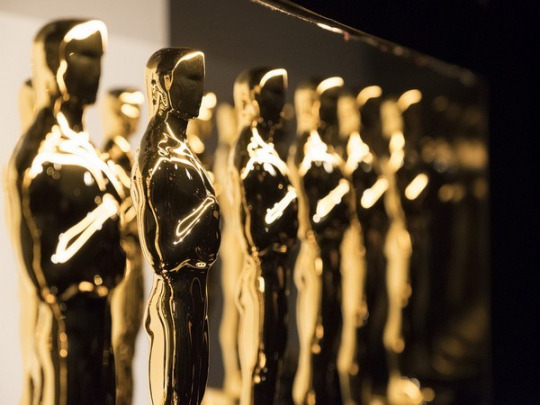
Here we are again. The final stab at a decent award show ceremony amidst a global pandemic. I'm not getting my hopes up after the Golden Globes and SAG zoom calls, in fact I've read very little about the upcoming ceremonies since they announced they would not be using zoom... and then promptly reversed that decision.
It would seem no matter how late we delay the Oscars, I still find myself the night before the show scrambling to watch all the Best Picture nominees. It also hasn't slipped my mind all the promises I'd made to discuss my top films of 2020 and the things I would not have seen if not for this global catastrophe. Having had a number of conversations with fellow cinephiles, many have also found themselves very unenthused about award season contenders, dramatic pictures or anything with heavier content so to speak, or even movies in general. The struggle to concentrate is real.
I'm going to get right into my list of predictions with the caveats that I have yet to see Sound of Metal, and I have to watch the second half of Judas and the Black Messiah after I hit 'post' here. You will find as we go through, there's lots more I haven't seen.
Best Picture
“The Father”
“Judas and the Black Messiah”
“Mank”
“Minari”
“Nomadland” - Will win
“Promising Young Woman” - Should win (though I liked Nomadland very much as well)
“Sound of Metal”
“The Trial of the Chicago 7”
Best Director
Thomas Vinterberg (“Another Round”)
David Fincher (“Mank”) - excellent director but I actually don't think he left his mark on Mank as much as he did many of his other films, I've questioned previously whether he should have gotten the nomination
Lee Isaac Chung (“Minari”)
Chloé Zhao (“Nomadland”) - Will win/should win
Emerald Fennell (“Promising Young Woman”)
Best Actor in a Leading Role - very strong contenders all around in this category, every one of them (I'm sure I'll have the same reaction about Riz Ahmed) made me say "holy shit" in amazement out loud
Riz Ahmed (“Sound of Metal”)
Chadwick Boseman (“Ma Rainey’s Black Bottom”) - Will win/should win
Anthony Hopkins (“The Father”)
Gary Oldman (“Mank”)
Steven Yeun (“Minari”)
Best Actress in a Leading Role
Viola Davis (“Ma Rainey’s Black Bottom”) - I think if not Andra Day, then Viola will win it
Andra Day (“The United States v. Billie Holiday”) - Will win?/should win
Vanessa Kirby (“Pieces of a Woman”)
Frances McDormand (“Nomadland”)
Carey Mulligan (“Promising Young Woman”)
Best Actor in a Supporting Role
Sacha Baron Cohen (“The Trial of the Chicago 7”) - I think he's also got a decent shot in this category
Daniel Kaluuya (“Judas and the Black Messiah”) - Will win/should win
Leslie Odom Jr. (“One Night in Miami”)
Paul Raci (“Sound of Metal”)
Lakeith Stanfield (“Judas and the Black Messiah”)
Best Actress in a Supporting Role
Maria Bakalova (‘Borat Subsequent Moviefilm”) - truth be told I didn't think her performance was so great that she should get an Oscar nomination for it
Glenn Close (“Hillbilly Elegy”)
Olivia Colman (“The Father”) - another potentially unpopular comment... while I think Olivia Colman is one of the best actresses and most delightful people in existence, given her range and talent I don't she particularly excelled in The Father to make it an Oscar-worthy performance.
Amanda Seyfried (“Mank”)
Yuh-jung Youn (“Minari”) - Will win/should win
Best Animated Feature Film - I only saw one film so I have no basis for comparison
“Onward” (Pixar)
“Over the Moon” (Netflix)
“A Shaun the Sheep Movie: Farmageddon” (Netflix)
“Soul” (Pixar) - will win
“Wolfwalkers” (Apple TV Plus/GKIDS)
Best Adapted Screenplay
“Borat Subsequent Moviefilm.” Screenplay by Sacha Baron Cohen, Anthony Hines, Dan Swimer, Peter Baynham, Erica Rivinoja, Dan Mazer, Jena Friedman, Lee Kern; Story by Sacha Baron Cohen, Anthony Hines, Dan Swimer, Nina Pedrad
“The Father,” Christopher Hampton and Florian Zeller - should win...and will win?
“Nomadland,” Chloé Zhao
“One Night in Miami,” Kemp Powers - might also win?
“The White Tiger,” Ramin Bahrani
Best Original Screenplay
“Judas and the Black Messiah.” Screenplay by Will Berson, Shaka King; Story by Will Berson, Shaka King, Kenny Lucas, Keith Lucas
“Minari,” Lee Isaac Chung
“Promising Young Woman,” Emerald Fennell - 50/50 will win/definitely should win tho!
“Sound of Metal.” Screenplay by Darius Marder, Abraham Marder; Story by Darius Marder, Derek Cianfrance
“The Trial of the Chicago 7,” Aaron Sorkin - 50/50 will win... I really didn't get onboard this movie, but I will say the script was the best thing about it
Best Original Song - I'm not even going to venture a guess...
“Fight for You,” (“Judas and the Black Messiah”). Music by H.E.R. and Dernst Emile II; Lyric by H.E.R. and Tiara Thomas
“Hear My Voice,” (“The Trial of the Chicago 7”). Music by Daniel Pemberton; Lyric by Daniel Pemberton and Celeste Waite
“Húsavík,” (“Eurovision Song Contest”). Music and Lyric by Savan Kotecha, Fat Max Gsus and Rickard Göransson
“Io Si (Seen),” (“The Life Ahead”). Music by Diane Warren; Lyric by Diane Warren and Laura Pausini
“Speak Now,” (“One Night in Miami”). Music and Lyric by Leslie Odom, Jr. and Sam Ashworth
Best Original Score - I actually didn't think much of any of the scores in any of the films I've seen in 2020...
“Da 5 Bloods,” Terence Blanchard
“Mank,” Trent Reznor, Atticus Ross
“Minari,” Emile Mosseri
“News of the World,” James Newton Howard
“Soul,” Trent Reznor, Atticus Ross, Jon Batiste - will win
Best Sound - I suspect it might be Sound of Metal but I haven't watched it yet. I've also not seen Greyhound.
“Greyhound,” Warren Shaw, Michael Minkler, Beau Borders and David Wyman
“Mank,” Ren Klyce, Jeremy Molod, David Parker, Nathan Nance and Drew Kunin
“News of the World,” Oliver Tarney, Mike Prestwood Smith, William Miller and John Pritchett
“Soul,” Ren Klyce, Coya Elliott and David Parker
“Sound of Metal,” Nicolas Becker, Jaime Baksht, Michelle Couttolenc, Carlos Cortés and Phillip Bladh
Best Costume Design
“Emma,” Alexandra Byrne - will win
“Mank,” Trish Summerville
“Ma Rainey’s Black Bottom,” Ann Roth - should win
“Mulan,” Bina Daigeler - should also win
“Pinocchio,” Massimo Cantini Parrini
Best Animated Short Film - I didn't watch a single Oscar-nominated short this year
“Burrow” (Disney Plus/Pixar)
“Genius Loci” (Kazak Productions)
“If Anything Happens I Love You” (Netflix)
“Opera” (Beasts and Natives Alike)
“Yes-People” (CAOZ hf. Hólamói)
Best Live-Action Short Film - I didn't watch a single Oscar-nominated short this year
“Feeling Through”
“The Letter Room”
“The Present”
“Two Distant Strangers”
“White Eye”
Best Cinematography
“Judas and the Black Messiah,” Sean Bobbitt
“Mank,” Erik Messerschmidt - will win/should win
“News of the World,” Dariusz Wolski
“Nomadland,” Joshua James Richards
“The Trial of the Chicago 7,” Phedon Papamichael
Best Documentary Feature - I thought I watched a decent number of docs in 2020, but apparently not the right ones because I saw none of these.
“Collective,” Alexander Nanau and Bianca Oana
“Crip Camp,” Nicole Newnham, Jim LeBrecht and Sara Bolder
“The Mole Agent,” Maite Alberdi and Marcela Santibáñez
“My Octopus Teacher,” Pippa Ehrlich, James Reed and Craig Foster
“Time,” Garrett Bradley, Lauren Domino and Kellen Quinn
Best Documentary Short Subject - I didn't watch a single Oscar-nominated short this year
“Colette,” Anthony Giacchino and Alice Doyard
“A Concerto Is a Conversation,” Ben Proudfoot and Kris Bowers
“Do Not Split,” Anders Hammer and Charlotte Cook
“Hunger Ward,” Skye Fitzgerald and Michael Scheuerman
“A Love Song for Latasha,” Sophia Nahli Allison and Janice Duncan
Best Film Editing
“The Father,” Yorgos Lamprinos - 50/50 will win/should win
“Nomadland,” Chloé Zhao
“Promising Young Woman,” Frédéric Thoraval
“Sound of Metal,” Mikkel E.G. Nielsen
“The Trial of the Chicago 7,” Alan Baumgarten - 50/50 will win
Best International Feature Film
“Another Round” (Denmark) - will win
“Better Days” (Hong Kong) - should win (yes, because I'm biased, plus it's also the only other film aside from Another Round that I've seen in this category and I liked it a lot better, but also, just because it's very fine film)
“Collective” (Romania)
“The Man Who Sold His Skin” (Tunisia)
“Quo Vadis, Aida?”(Bosnia and Herzegovina)
Best Makeup and Hairstyling
“Emma,” Marese Langan, Laura Allen, Claudia Stolze - will win
“Hillbilly Elegy,” Eryn Krueger Mekash, Patricia Dehaney, Matthew Mungle
“Ma Rainey’s Black Bottom,” Sergio Lopez-Rivera, Mia Neal, Jamika Wilson - should win
“Mank,” Kimberley Spiteri, Gigi Williams, Colleen LaBaff
“Pinocchio,” Mark Coulier, Dalia Colli, Francesco Pegoretti
Best Production Design
“The Father.” Production Design: Peter Francis; Set Decoration: Cathy Featherstone - I don't think this is the best Production Design but I do think it's underrated what they did and that it should be recognized a different kind of creativity went into designing the sets for this film.
“Ma Rainey’s Black Bottom.” Production Design: Mark Ricker; Set Decoration: Karen O’Hara and Diana Stoughton
“Mank.” Production Design: Donald Graham Burt; Set Decoration: Jan Pascale - will win? I do think the Production Design was spectacular...
“News of the World.” Production Design: David Crank; Set Decoration: Elizabeth Keenan
“Tenet.” Production Design: Nathan Crowley; Set Decoration: Kathy Lucas - should win
Best Visual Effects
“Love and Monsters,” Matt Sloan, Genevieve Camilleri, Matt Everitt and Brian Cox
“The Midnight Sky,” Matthew Kasmir, Christopher Lawrence, Max Solomon and David Watkins
“Mulan,” Sean Faden, Anders Langlands, Seth Maury and Steve Ingram
“The One and Only Ivan,” Nick Davis, Greg Fisher, Ben Jones and Santiago Colomo Martinez
“Tenet,” Andrew Jackson, David Lee, Andrew Lockley and Scott Fisher - will win/should win... like why would it not win??
Ok, I wasn't very decisive in some of those categories and since I'm taking part in an Oscar pool I will have to make some choices and refine my selections before tomorrow. I will share my final Oscar pool pics, do my part bombarding everyone's twitter tomorrow evening, and review after the awards where it all went right/wrong.
4 notes
·
View notes
Text
Oscars 2021: lista completa de nominados

Tarde pero seguro. El próximo 25 de abril se entregarán las estatuillas más esperadas del cine; entre estrenos cancelados y cines transformados en salas de living y streming, llegarán finalmente los premios más ansiados por los amantes del séptimo arte.
- OSCAR NOMINATIONS 2021 -
Best Picture
THE FATHER David Parfitt, Jean-Louis Livi and Philippe Carcassonne, Producers JUDAS AND THE BLACK MESSIAH Shaka King, Charles D. King and Ryan Coogler, Producers MANK Ceán Chaffin, Eric Roth and Douglas Urbanski, Producers MINARI Christina Oh, Producer NOMADLAND Frances McDormand, Peter Spears, Mollye Asher, Dan Janvey and Chloé Zhao, Producers PROMISING YOUNG WOMAN Ben Browning, Ashley Fox, Emerald Fennell and Josey McNamara, Producers SOUND OF METAL Bert Hamelinck and Sacha Ben Harroche, Producers THE TRIAL OF THE CHICAGO 7 Marc Platt and Stuart Besser, Producers
Actor in a Leading Role
Riz Ahmed in SOUND OF METAL Chadwick Boseman in MA RAINEY'S BLACK BOTTOM Anthony Hopkins in THE FATHER Gary Oldman in MANK Steven Yeun in MINARI
Actor in a Supporting Role
Sacha Baron Cohen in THE TRIAL OF THE CHICAGO 7 Daniel Kaluuya in JUDAS AND THE BLACK MESSIAH Leslie Odom, Jr. in ONE NIGHT IN MIAMI... Paul Raci in SOUND OF METAL Lakeith Stanfield in JUDAS AND THE BLACK MESSIAH
Actress in a Leading Role
Viola Davis in MA RAINEY'S BLACK BOTTOM Andra Day in THE UNITED STATES VS. BILLIE HOLIDAY Vanessa Kirby in PIECES OF A WOMAN Frances McDormand in NOMADLAND Carey Mulligan in PROMISING YOUNG WOMAN
Actress in a Supporting Role
Maria Bakalova in BORAT SUBSEQUENT MOVIEFILM: DELIVERY OF PRODIGIOUS BRIBE TO AMERICAN REGIME FOR MAKE BENEFIT ONCE GLORIOUS NATION OF KAZAKHSTAN Glenn Close in HILLBILLY ELEGY Olivia Colman in THE FATHER Amanda Seyfried in MANK Yuh-Jung Youn in MINARI
Animated Feature Film
ONWARD Dan Scanlon and Kori Rae OVER THE MOON Glen Keane, Gennie Rim and Peilin Chou A SHAUN THE SHEEP MOVIE: FARMAGEDDON Richard Phelan, Will Becher and Paul Kewley SOUL Pete Docter and Dana Murray WOLFWALKERS Tomm Moore, Ross Stewart, Paul Young and Stéphan Roelants
Cinematography
JUDAS AND THE BLACK MESSIAH Sean Bobbitt MANK Erik Messerschmidt NEWS OF THE WORLD Dariusz Wolski NOMADLAND Joshua James Richards THE TRIAL OF THE CHICAGO 7 Phedon Papamichael
Costume Design
EMMA Alexandra Byrne MA RAINEY'S BLACK BOTTOM Ann Roth MANK Trish Summerville MULAN Bina Daigeler PINOCCHIO Massimo Cantini Parrini
Directing
ANOTHER ROUND Thomas Vinterberg MANK David Fincher MINARI Lee Isaac Chung NOMADLAND Chloé Zhao PROMISING YOUNG WOMAN Emerald Fennell
Documentary (Feature)
COLLECTIVE Alexander Nanau and Bianca Oana CRIP CAMP Nicole Newnham, Jim LeBrecht and Sara Bolder THE MOLE AGENT Maite Alberdi and Marcela Santibáñez MY OCTOPUS TEACHER Pippa Ehrlich, James Reed and Craig Foster TIME Garrett Bradley, Lauren Domino and Kellen Quinn
Documentary (Short Subject)
COLETTE Anthony Giacchino and Alice Doyard A CONCERTO IS A CONVERSATION Ben Proudfoot and Kris Bowers DO NOT SPLIT Anders Hammer and Charlotte Cook HUNGER WARD Skye Fitzgerald and Michael Scheuerman A LOVE SONG FOR LATASHA Sophia Nahli Allison and Janice Duncan
Film Editing
THE FATHER Yorgos Lamprinos NOMADLAND Chloé Zhao PROMISING YOUNG WOMAN Frédéric Thoraval SOUND OF METAL Mikkel E. G. Nielsen THE TRIAL OF THE CHICAGO 7 Alan Baumgarten
International Feature Film
ANOTHER ROUND Denmark BETTER DAYS Hong Kong COLLECTIVE Romania THE MAN WHO SOLD HIS SKIN Tunisia QUO VADIS, AIDA? Bosnia and Herzegovina
Makeup and Hairstyling
EMMA Marese Langan, Laura Allen and Claudia Stolze HILLBILLY ELEGY Eryn Krueger Mekash, Matthew Mungle and Patricia Dehaney MA RAINEY'S BLACK BOTTOM Sergio Lopez-Rivera, Mia Neal and Jamika Wilson MANK Gigi Williams, Kimberley Spiteri and Colleen LaBaff PINOCCHIO Mark Coulier, Dalia Colli and Francesco Pegoretti
Music (Original Score)
DA 5 BLOODS Terence Blanchard MANK Trent Reznor and Atticus Ross MINARI Emile Mosseri NEWS OF THE WORLD James Newton Howard SOUL Trent Reznor, Atticus Ross and Jon Batiste
Music (Original Song)
"Fight For You" from JUDAS AND THE BLACK MESSIAH Music by H.E.R. and Dernst Emile II; Lyric by H.E.R. and Tiara Thomas "Hear My Voice" from THE TRIAL OF THE CHICAGO 7 Music by Daniel Pemberton; Lyric by Daniel Pemberton and Celeste Waite "Husavik" from EUROVISION SONG CONTEST: THE STORY OF FIRE SAGA Music and Lyric by Savan Kotecha, Fat Max Gsus and Rickard Göransson "Io Sì (Seen)" from THE LIFE AHEAD (LA VITA DAVANTI A SE) Music by Diane Warren; Lyric by Diane Warren and Laura Pausini "Speak Now" from ONE NIGHT IN MIAMI... Music and Lyric by Leslie Odom, Jr. and Sam Ashworth
Production Design
THE FATHER Production Design: Peter Francis; Set Decoration: Cathy Featherstone MA RAINEY'S BLACK BOTTOM Production Design: Mark Ricker; Set Decoration: Karen O'Hara and Diana Stoughton MANK Production Design: Donald Graham Burt; Set Decoration: Jan Pascale NEWS OF THE WORLD Production Design: David Crank; Set Decoration: Elizabeth Keenan TENET Production Design: Nathan Crowley; Set Decoration: Kathy Lucas
Short Film (Animated)
BURROW Madeline Sharafian and Michael Capbarat GENIUS LOCI Adrien Mérigeau and Amaury Ovise IF ANYTHING HAPPENS I LOVE YOU Will McCormack and Michael Govier OPERA Erick Oh YES-PEOPLE Gísli Darri Halldórsson and Arnar Gunnarsson
Short Film (Live Action)
FEELING THROUGH Doug Roland and Susan Ruzenski THE LETTER ROOM Elvira Lind and Sofia Sondervan THE PRESENT Farah Nabulsi TWO DISTANT STRANGERS Travon Free and Martin Desmond Roe WHITE EYE Tomer Shushan and Shira Hochman
Sound
GREYHOUND Warren Shaw, Michael Minkler, Beau Borders and David Wyman MANK Ren Klyce, Jeremy Molod, David Parker, Nathan Nance and Drew Kunin NEWS OF THE WORLD Oliver Tarney, Mike Prestwood Smith, William Miller and John Pritchett SOUL Ren Klyce, Coya Elliott and David Parker SOUND OF METAL Nicolas Becker, Jaime Baksht, Michelle Couttolenc, Carlos Cortés and Phillip Bladh
Visual Effects
LOVE AND MONSTERS Matt Sloan, Genevieve Camilleri, Matt Everitt and Brian Cox THE MIDNIGHT SKY Matthew Kasmir, Christopher Lawrence, Max Solomon and David Watkins MULAN Sean Faden, Anders Langlands, Seth Maury and Steve Ingram THE ONE AND ONLY IVAN Nick Davis, Greg Fisher, Ben Jones and Santiago Colomo Martinez TENET Andrew Jackson, David Lee, Andrew Lockley and Scott Fisher
Writing (Adapted Screenplay)
BORAT SUBSEQUENT MOVIEFILM: DELIVERY OF PRODIGIOUS BRIBE TO AMERICAN REGIME FOR MAKE BENEFIT ONCE GLORIOUS NATION OF KAZAKHSTAN Screenplay by Sacha Baron Cohen & Anthony Hines & Dan Swimer & Peter Baynham & Erica Rivinoja & Dan Mazer & Jena Friedman & Lee Kern; Story by Sacha Baron Cohen & Anthony Hines & Dan Swimer & Nina Pedrad THE FATHER Screenplay by Christopher Hampton and Florian Zeller NOMADLAND Written for the screen by Chloé Zhao ONE NIGHT IN MIAMI... Screenplay by Kemp Powers THE WHITE TIGER Written for the screen by Ramin Bahrani
Writing (Original Screenplay)
JUDAS AND THE BLACK MESSIAH Screenplay by Will Berson & Shaka King; Story by Will Berson & Shaka King and Kenny Lucas & Keith Lucas MINARI Written by Lee Isaac Chung PROMISING YOUNG WOMAN Written by Emerald Fennell SOUND OF METAL Screenplay by Darius Marder & Abraham Marder; Story by Darius Marder & Derek Cianfrance THE TRIAL OF THE CHICAGO 7 Written by Aaron Sorkin
5 notes
·
View notes
Text
Bloody Valentines
Fandom: DC Comics, Batfam, Young Justice 98, Titans, GL Corps, Legion of Super Heroes, Flashfam, New Gods
Summary: 90s vampire slasher AU
Chapters: 5/?
Characters: Dick Grayson, Joseph Wilson, Jason Todd, Charley Parker, Zatanna, Eddie Bloomberg, Daniel Cassidy, Chester Williams DC, Guy Gardner, Kyle Rayner, Lilith Clay, Raven Roth, Kole Weathers, Bette Kane, Donna Troy, Roy Harper, Jenni Ognats, Bart Allen, Virgil Hawkins, Richie Foley, Ayla Ranzz, Zoe Saugin, Rol Purtha, Darla Aquista, Lori Zechlin, Hal Jordan, Helen Jordan II, Orion DC, Lightray DC
Relationships: DickJoey, Daniel Cassidy/Zatanna, DonnaRoy, Jenni Ognats/Virgil Hawkins, Raven/Lilith Clay
Additional Tags: POV First Person, Unreliable Narrator(s), Vampires, No Capes AU, 90s Slasher AU, Homoeroticism, Horror, Slasher
Chapter Five: The Omen (Lilith's POV)
Donna suggested the trip, and Roy insisted on driving us. I invited Bette and Kole, and Donna requested Raven join us. It was the only time we all had off to vacation. We planned on spelunking and walking the beach and doing all sorts of things, but the closer the trip got, the more we all started feeling uneasy. Raven read a book, Bette nibbled on trail mix, Donna messed around with the map, Roy ignored her directions, and Kole slept soundly on my shoulder. Occasionally, I'd lean over and glance at Raven's book or check if Kole was alright, but the car was mostly silent.
Roy stopped in the middle of the road, and everyone looked up. "Injured animal in the road... Hold on," Roy whispered. He rolled the window down partway. "Hey! Do you need-?"
"No, thanks! Can you get around?" a man yelled, and Roy answered back before driving around them. Raven grabbed my wrist.
"Did you feel that?" Raven questioned. I shushed her. Where she came from, those feelings weren't as foreign to normal people. But yeah, I felt it. A full-body cold started in my frontal lobe and penetrated my scalp, trickling down my neck, shoulders, and chest like ice water. Fear. Primal. Final. It was different than regular fear. It was dreadful, helpless, hopeless. That was a fear, unlike anything I'd ever felt before.
"Mhm," I mumbled.
Raven and I felt things. Other people's feelings, the feelings of animals, and sometimes places. Empaths. Raven was more in tune with it than I was, but it came at a cost for both of us. She was heavily affected by the emotions of others, and it showed on her face all the time. I could mask it, but she never had to. Donna touched Roy's arm for Roy's comfort. Not hers. I could feel his distress.
He sighed. "Call me superstitious, but I've only seen a dead coyote a few times before, and nothing good ever comes from it... And that coyote isn't gonna make it. Looks like something ate it up," Roy stated. Donna whispered in his ear, and he shook his head.
The car fell silent until we reached Happy Harbor. I woke Kole, and we walked in the dark to our cabin. Raven had a dizzy spell as soon as we walked in, and I reached out to help her, but I felt it too. Bette grabbed me, Kole grabbed Raven, and they sat us down. "Yikes, you guys good?" Bette questioned. Raven and I nodded. The energy there was outrageous. Raven's hand brushed mine, and I saw a flash of Bette covered in blood and screaming. I recoiled. Raven stood up and took a deep breath.
"Let's go make s'mores while it's still early," Raven suggested. Everyone eased up, and we grabbed our jackets and the bag of roasting sticks and walked to the beach. Roy and Donna lagged behind, so we couldn't see them holding hands. We all knew about them, but they were worried about being labeled as an item and messing up their friendship. I didn't have to be an empath to see it wouldn't last.
When we got to the beach, a girl and her three male friends had already started a bonfire, so we shared our s'mores. They were calm and collected, so it helped everyone else relax. Then, a brunette and a redhead with a bowl cut came to the beach with hot dogs, and the brown-haired guy made a pass at me. Bette lied and told him it was a gay beach, but I don't think she had to lie to this one to leave me alone. He looked like the type of guy that was more than willing to take no for an answer and move on. I could feel the grief coming off his body, so I could've let him down without hurting his feelings.
We were at the beach until it got too cold to be outside. Once we returned to the cabin, we divvied up rooms and beds. Three rooms. Three beds. Bette and Kole wanted to stay up and paint each other's nails, so they bunked together. I asked Raven to stay with me, so Roy and Donna wouldn't have to find a way to lie to be together. The worst kept secret in America. Roy took his jacket off, and I glanced at his tattoo. Roy met eyes with me, and I leaned forward. I wanted to get a closer look and get a laugh from him. "Can I help you?" Roy laughed.
"Just getting a look at the details," I replied.
Roy nodded, and everyone got ready to take their showers. First, Roy, then Donna, Raven, Bette, Kole, and finally me. I didn't mind. I climbed into bed with Raven, and she turned to me. "What did you see?" Raven asked.
"You first," I whispered.
"I think Kole is going to kill someone," Raven whispered. I knit my brows.
"I think Bette's gonna kill somebody," I replied, "Maybe we should talk about something else..."
Raven looked at me, and we held eye contact for what felt like forever. "Do you think it'd be the same?" Raven questioned. I took a breath. I knew what she meant. I thought about it before.
She drew my hand to her chest, and I let her touch mine. I could feel the smooth outline of her breast beneath the thin, satin fabric of her lingerie. I passed curiosity and ventured into arousal as my hand slid down her stomach and came into contact with her thigh. Her skin was as icy and silky as it looked. "We should stop," I whispered as I tried to gain control of my senses.
"Do you want to stop?" Raven questioned. I shook my head, and she leaned forward so close that our lips brushed against each other. Our eyes were wide open at first, but her lips were so soft. When she ran her foot against my leg, I shut my eyes and melted into the ecstasy of the moment. And then I felt it. Her arousal interlaced with something else. Something innocent and sweet.
"Are you-? You're a virgin?" I questioned. She nodded. "You want me to take your virginity?"
Raven answered with a tentative kiss, and she pushed me down further into the center of the bed by my shoulders. I pulled her nightgown up underneath the sheets and let my fingers brush against the front of her panties. My middle finger ran up and down against the cotton fabric as she lifted her leg, throwing it over my thigh. We kissed a third time, with confidence, as I hooked my thumb in her waistband. I could hear her breathing in between kisses. Then thunder crackled, and lightning flashed, scaring us apart. We turned, facing opposite sides of the room.
I don't know if Raven slept afterward or if she lay awake. But I know one thing for sure. I still wanted to fuck her. That feeling was mine. Undeniably mine.
#fic#bloody valentines fic#Lilith Clay#Raven Roth#Kole Weathers#Bette Kane#Donna Troy#Roy Harper#DonnaRoy#Raven/Lilith Clay#POV First Person#Unreliable Narrator(s)#Vampires#No Capes AU#90s Slasher AU#Homoeroticism#Horror#Slasher
6 notes
·
View notes
Link
Check out this listing I just added to my Poshmark closet: Ceramic Nesting Bowls NWT Set of 3.
0 notes
Text
'What It Feels Like...'
*links are in blue.
The title of this article is "What It Feels Like: Changing Your Sex, Having Narcolepsy & Being Attacked by an Alligator." It was published in Esquire Magazine on Jan 29, 2007. I stumbled upon it because I wanted to read Jimmy Kimmel's essay about being a narcoleptic.
I'm narcoleptic. I've mentioned it several times randomly here and there. It's not that big a deal. I don't really know any different and until my early 20s I had no clue other people didn't struggle like I did/do to stay awake, because everyone experiences being tired. Right? But narcolepsy is different than just being tired. Unfortunately Jimmy Kimmel's essay is a bit bland compared to many of the other essays collected here. Of course, narcolepsy is not a really exciting disorder filled with whizbangs and whistles, but this does now inspire me to write my own essay.
It's difficult to pick a favorite essay from this collection, but I am super impressed how fascinating I found several essays when I had no prior interest at all in the topic. Who would've guessed that the 'stealing home base' essay would be one if my favorite essays in this collection, even thoughI have zero interest in baseball.
Well, aside from Charlie Sheen in Major League.....
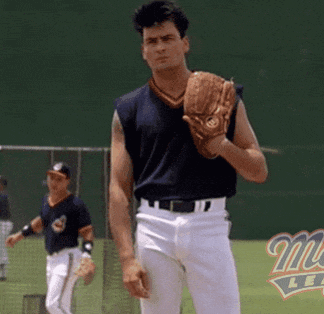
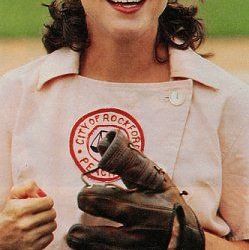
The women in League Of Her Own.....
Amd Tim Robbins with Susan Sarandon in Bull Durham. Mmmmmm......
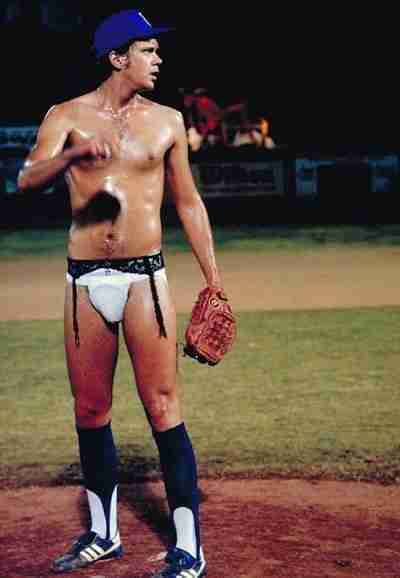

Here are the essays in this article that I linked to, listing just the essaytitle and summary or just authors. SERIOUSLY these are super interesting AND will especially be great for writer research. The first essay alone has me going back to make changes to an progress fic where Loki is falling.
What It Feels Like...to Parachute from Space
By Joe Kittinger, 74, retired Air Force test pilot, who has held the world parachuting record, 102,800 feet, since 1960, as told to David Pfister.
What It Feels Like...to Change Your Sex
By Amanda Kent, 49, marketing manager, as told to Bryan Mealer
What It Feels Like...to Be a Dominatrix
By Storm, 24, TV producer, as told to Genevieve J. Roth
What It Feels Like...to See Music
By Sean Day, 41, college professor, as told to David Jacobson
What It Feels Like...to Steal Home
By Rod Carew, 57, baseball player, as told to Mike Sager
What It Feels Like...to Be in a NASCAR Crash
By Mike Harmon, 45, Race-car driver, as told to John Korpics
What It Feels Like...to Survive a Fire
By Phil Barr, 21, student, Bates College, as told to Daniel Torday
What It Feels Like...to Be in an Earthquake
What It Feels Like...to Have Size DDD Breasts
By Anonymous, 30, recruiter, as told to Aimee E. Bartol
What It Feels Like...to Have Narcolepsy
By Jimmy Kimmel, 35, host of Jimmy Kimmel Live, as told to Brendan Vaughan
What It Feels Like...to Be Paranoid
By Mark Twain, writer, adapted from the account of the 1868 San Francisco earthquake in Roughing It
What It Feels Like...to Be a Kleptomaniac
By Anonymous, as told to Kevin McDonnell
By Ian Chovil, 49, consultant, as told to Tyler Cabot
What It Feels Like...to Be Attacked by an Alligator
By Don Goodman, 59, director of the Kanapaha Botanical Gardens, Gainesville, Florida, as told to Jeff Klinkenberg
What It Feels Like...to Surf the Biggest Wave on Record
By Mike Parsons, 38, professional surfer, as told to Daniel Torday
What It Feels Like...to Be Trapped in a Submarine
By Allen C. Bryson, 85, machinist on the USS Squalus, which suffered valve failure on May 23, 1939, and sank off the coast of New Hampshire. Twenty-six men drowned immediately; thirty-three were trapped on the ocean floor for thirty-nine hours. As told to Ted Allen
@caffiend-queen @nildespirandum @redfoxwritesstuff @wolfsmom1 @emeraldrosequartz @latent-thoughts

11 notes
·
View notes
Video
youtube
Debbie Gibson - Girls Night Out (Tracy Young #VegasVibe Remix) Official ...
So excited for you to watch my official music video for "Girls Night Out" (Tracy Young #VegasVibe Remix)! #DebbieGibson Music Video Cast & Crew Credits: Director: John Asher @therealjohnasher Assistant Director: Justin Giffen 2nd AD: Melissa Rocco Cinematographer: Graham Futerfas Assistant Camera: Noah Ramos 2nd AC: Pancho Ortiz Production Company We Are Films wearefilms.com Producer: Aaron Craig Choreographers: Eddie Bennett and Buddy Casimano Casting: Julie Goldman and Liz Lewis Casting Gaffer: Chance Roberts Key Grip: Keaton Bayne Best Boy Grip: Randall Cassata Grip: Unico Clemente Production Designer: John Henry Production Designer Assistant: Danielle Estrada Production Assistant: Amaar Clemente Production Assistant: Stephanie Bayne Production Assistant: Alexander Laird Additional production support from Monsoon Production Services Post production: Company3 producer: Mario Costa colorist: Tyler Roth Special Thanks to Planet Hollywood, Allen Lester and Damian Costa Caesars Entertainment. Debbie Gibson Team Management: Heather Moore Assistant to Ms Gibson: JT Wolkiewicz Publicity: Elizabeth Neff Debbie Gibson GLAM Hair by Sarah Ajdahim Makeup by Sheena Zargari Debbie Gibson Wardrobe Nude / White Dress Custom design by Elie Madi / Wardrobe For The Stars Fashion House Shoes Valentino Black / Pink / Purple Bodysuit Custom design by Rocky Gathercole / Wardrobe For The Stars Fashion House Shoes Prada Black / White Zebra Coat Designer St. John Lorena Crushed Velvet Jumpsuit Walter Collection waltercollection.com Guest appearance by Yamaneika Saunders Additional Hair/Makeup for Ms Saunders Teresa Fassl Champagne VIP Lounge: Matt Goss Champagne Showgirls: Showgirl 1: Shana McCartney Showgirl 2: Jen Cloer Showgirl 3: Hillary Elliot Showgirl 4: Nadjana Dueck Showgirl 5: Kady Heard Featured Dancers: Katrina Currow Johanna Williams Andrea Avruskia K. Pendu Malik Tida Siribongkot Jaeli Wolf Noemi Jackson Featured Drag Performers: Elliott Puckett Larry Edward aka Hot Chocolate Kenneth Rex Chris Woods Roberto Silva DJ assistant: Kevin Summers Special Thanks: Dayna Roselli Sean McCallister Julie Savage Alexandra Maly Kelly Denino Carolyn Oliver Kennedy Ciruli Joe Chu Keri Ann Parkes Eloise Riddle Christopher Guzzo Olly Rowland Matt Goss Background Actors: Alexia Anast Maynard Bagang Brandon Dean My Do Megan Fisher Sonia Gascon Robert Gutierrez Yolanda Johns Eduardo Marin Katherine Nemechek Jessie Pauli Brianna Payne Ariana Reyes America Rivas Niloufar Sedaghati Stream / Buy "Girls Night Out" (Tracy Young Remixes): https://smarturl.it/gnotracyyoungremixes Song Credits: Music and Lyrics by Debbie Gibson Remixed and Produced by Tracy Young
2 notes
·
View notes